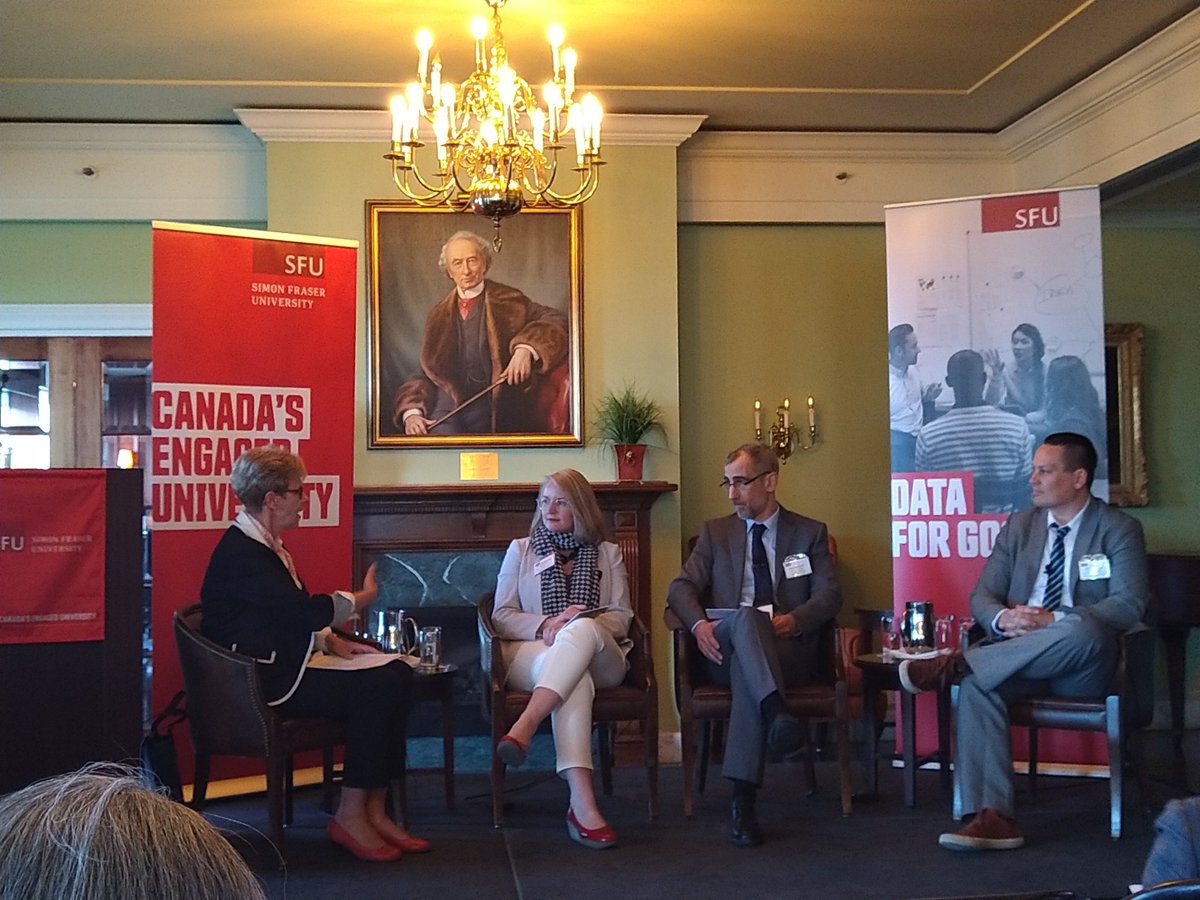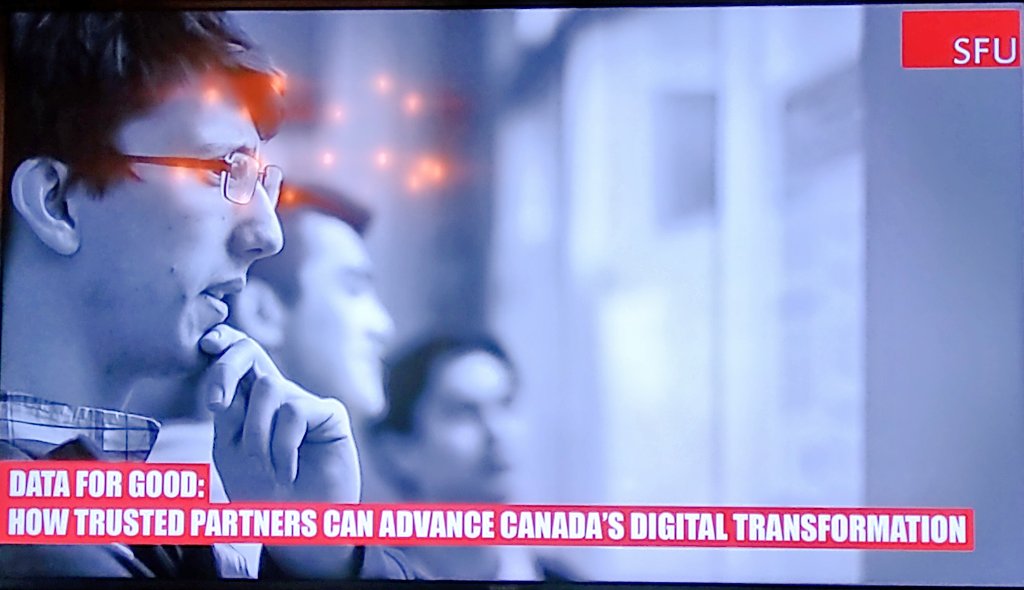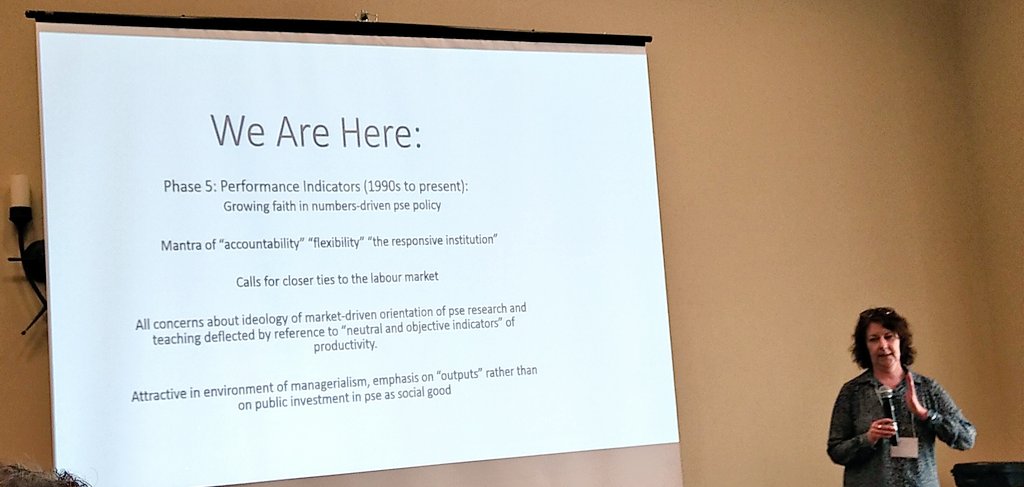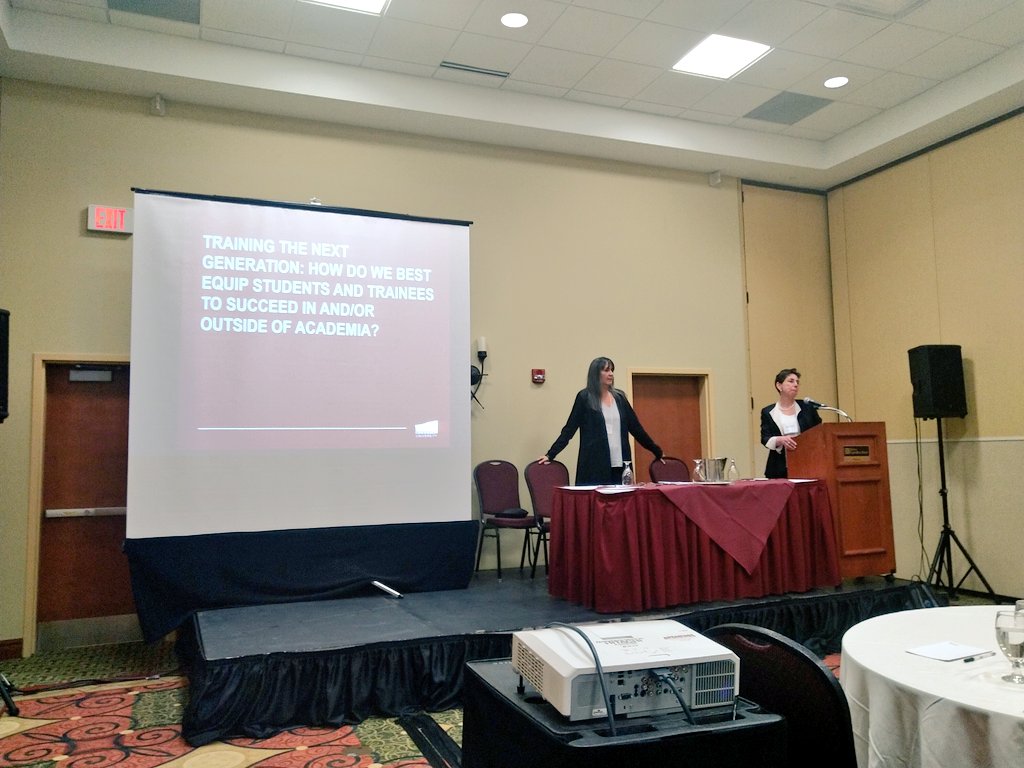I'll reply to this tweet w/ each panel I attend, creating a thread under each w/ live notes
My schedule: 🔗cspc2019.sched.com/shawnmcguirk
And, ICYMI, see the new CSPC magazine for my op-ed about @DSP_SPE & #CapacityBuilding in #scipol!
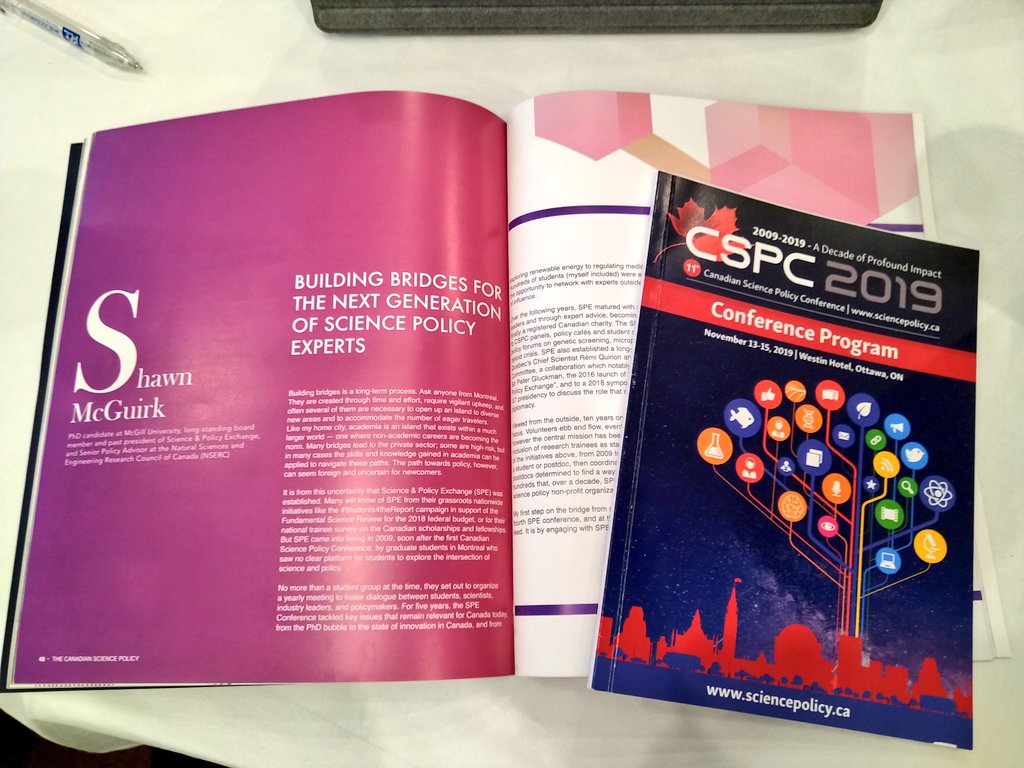
🔹 For communications, the ability to be brief (tweet length summaries!) is key
🔹 Universities should promote organic mentorship by leveraging alumni office, get alums to meet students over ☕!
🔹 Standardized testing measuring skills have shown many grads don't meet the benchmark.
🔹 Would be useful to regularly assess the programs that are meant to provide these skills, to see if they achieve their goals.
w/ Rolf Heur @EU_Commission group of scientific advisors, @uksciencechief, @YasminKhan5 @UofT, @AajKamranKhan
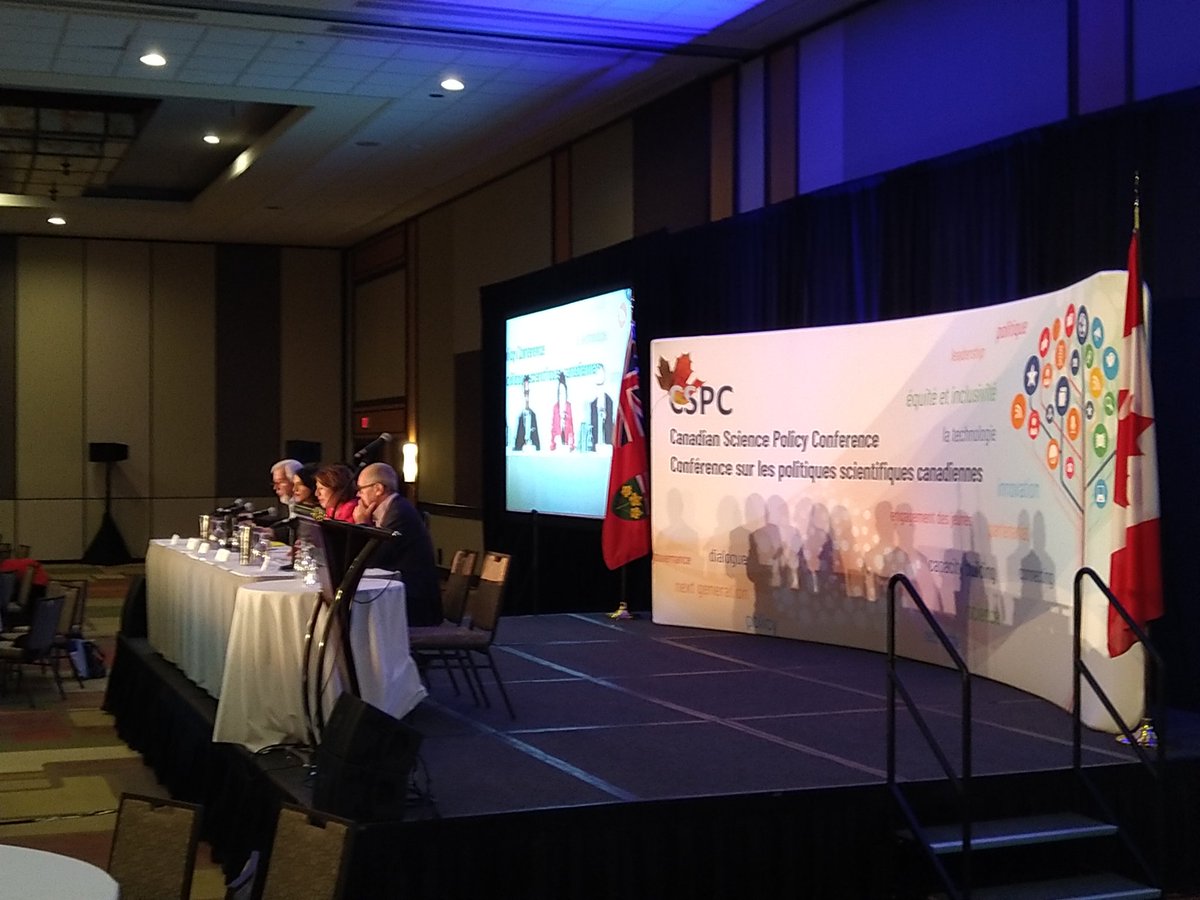
UK has a standing Joint Modelling Group, who work well together and are pulled together within 4h of an emergency. They pull data from public and proprietary resources and write clear summaries for SAGE.
Natural language processing helps BlueDot run through big data in every language to monitor time and location data for infectious disease.
This also enables good open communication, in academic publication, to policymakers, to the public.
w/ @TanguayGen, David Cory @QuantumIQC, @AimeeKGunther, Gail Murphy @UBC, @zaribafiyan
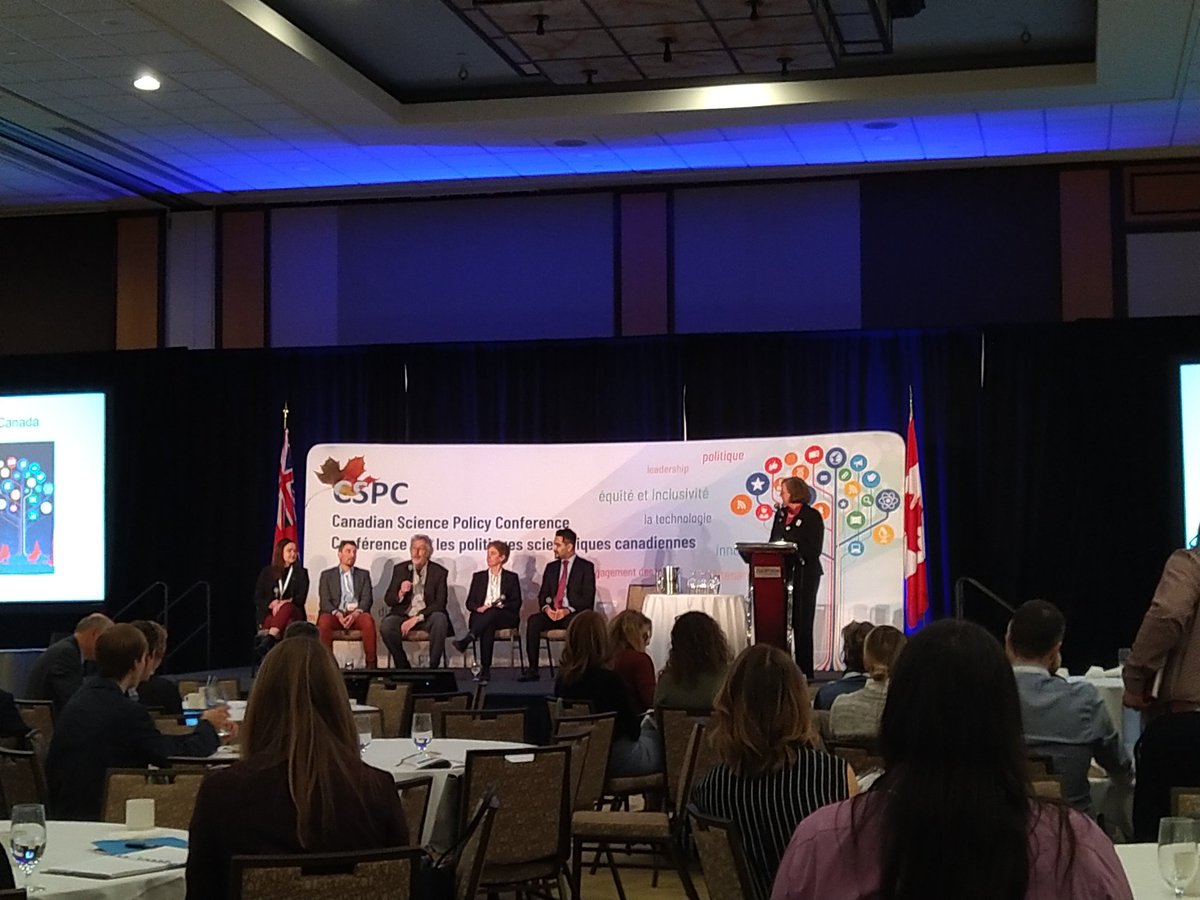
Canada is developing a strategy.
What is the potential impact of quantum? Is it a fad, or is it the future?
Quantum overall is a transformative technology ➡️ can affect Canada not just for making cool toys, it can be used against us (national security issue, eg. cybersecurity)
G Murphy says developing a strategy enables the acceleration of growth of tech & capacity
David Cory adds that great individuals are working on quantum, but individuals are not enough. Collective approach & interdisciplinarity is 💪
We need their creativity! Shout out to SIF program, @NSERC_CRSNG Alliance and CREATE, scholarships and fellowships. But how do we ensure that research makes it through the innovation pipeline? How can we coordinate govt programs?
Researchers shouldn't charge ahead without engage nationally, incl with policymakers
#CSPC2019 /fin
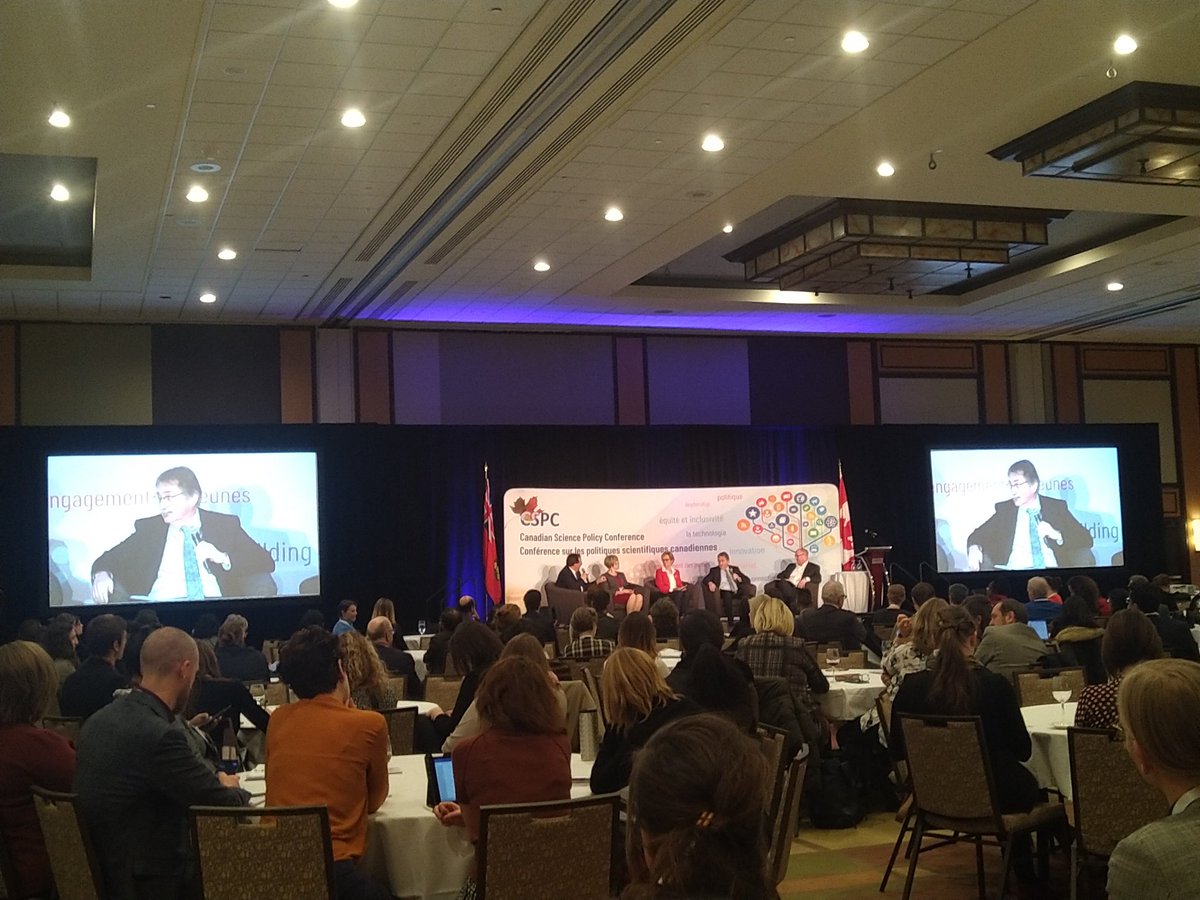
Yes but collaboration shouldn't be forced by an overly complex call. Should give researchers freedom to address the issue w/ creativity. Challenges also don't have to be grand
Issue w/ grand challenges is often that social sciences and humanities researchers aren't as well represented in the teams
Grand challenges do promote interdisciplinarity, but also lots of interdisc happens organically (bottom-up). Cannot ignore this.
@drjoyjohnson notes that collaboration and competition are both important to drive innovative ideas and research

UKRI also has a program for making these kinds of connections, which is well received
⬇️
Panel w/ @MonicaGattinger @ISSP_uOttawa, Claire Hemingway @NSF, Rainer Grulich @dfg_public, @jclemay4 @SciChefQC #scidip fellow, Chloe Summers @UKRI_NorthAmer & @decker_je @NRC_CNRC
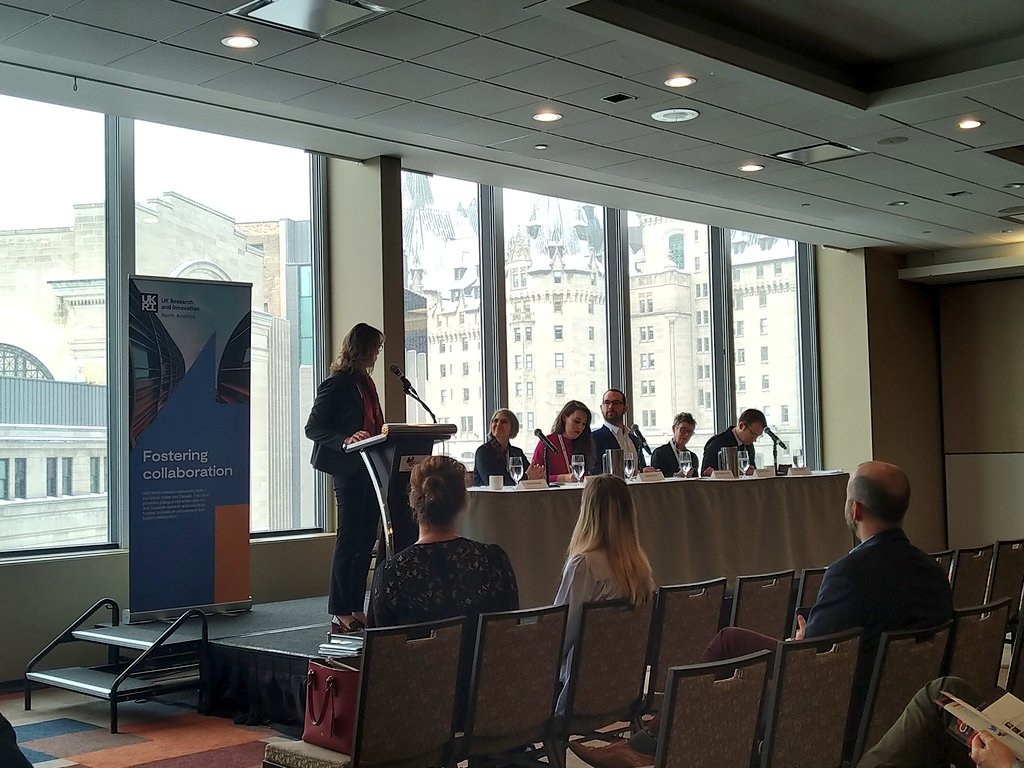
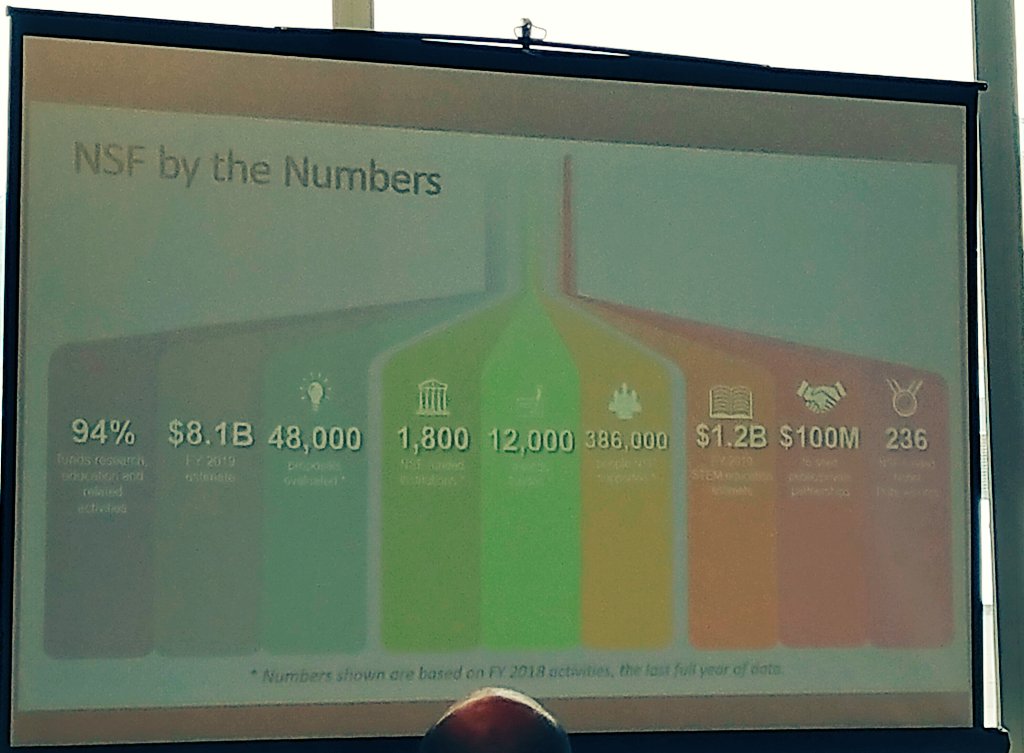
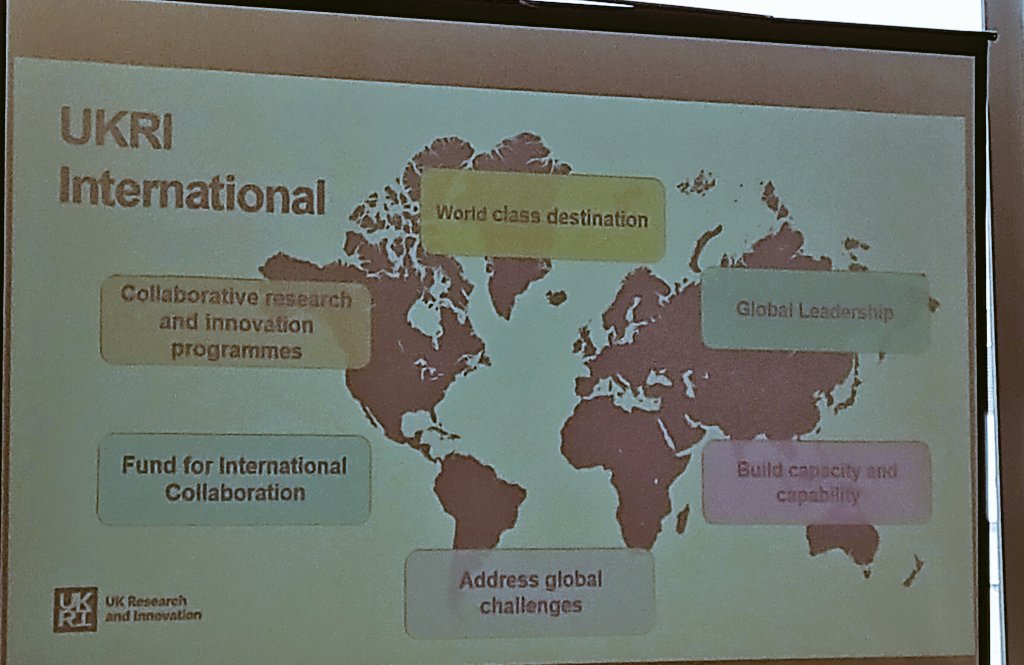
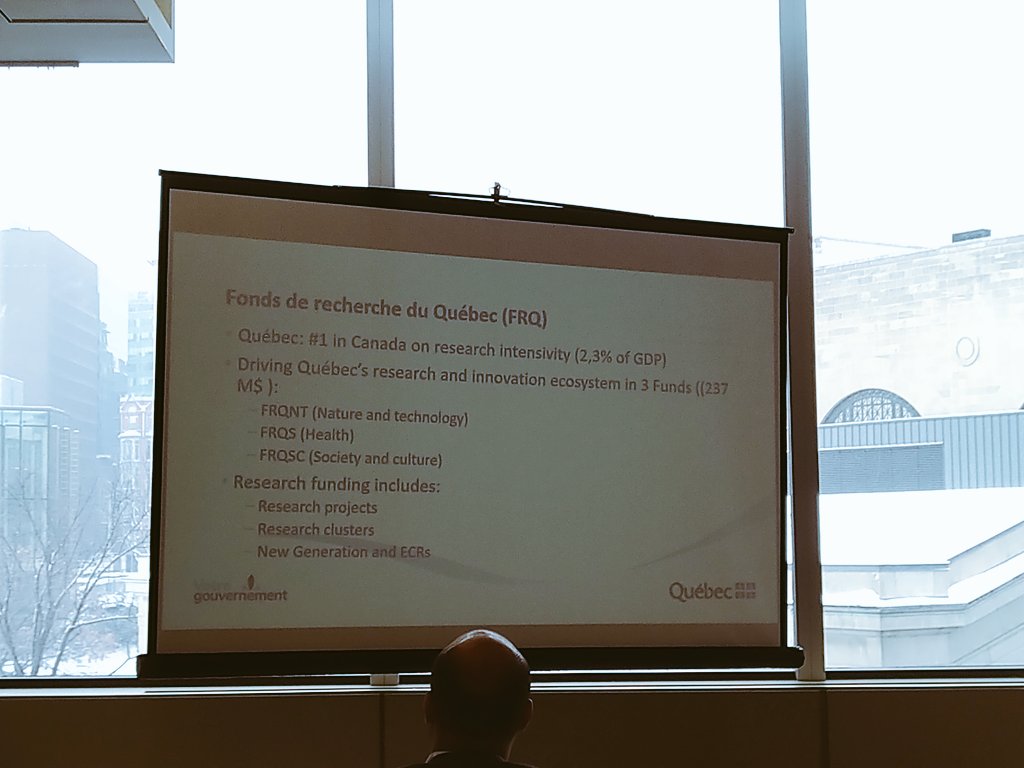
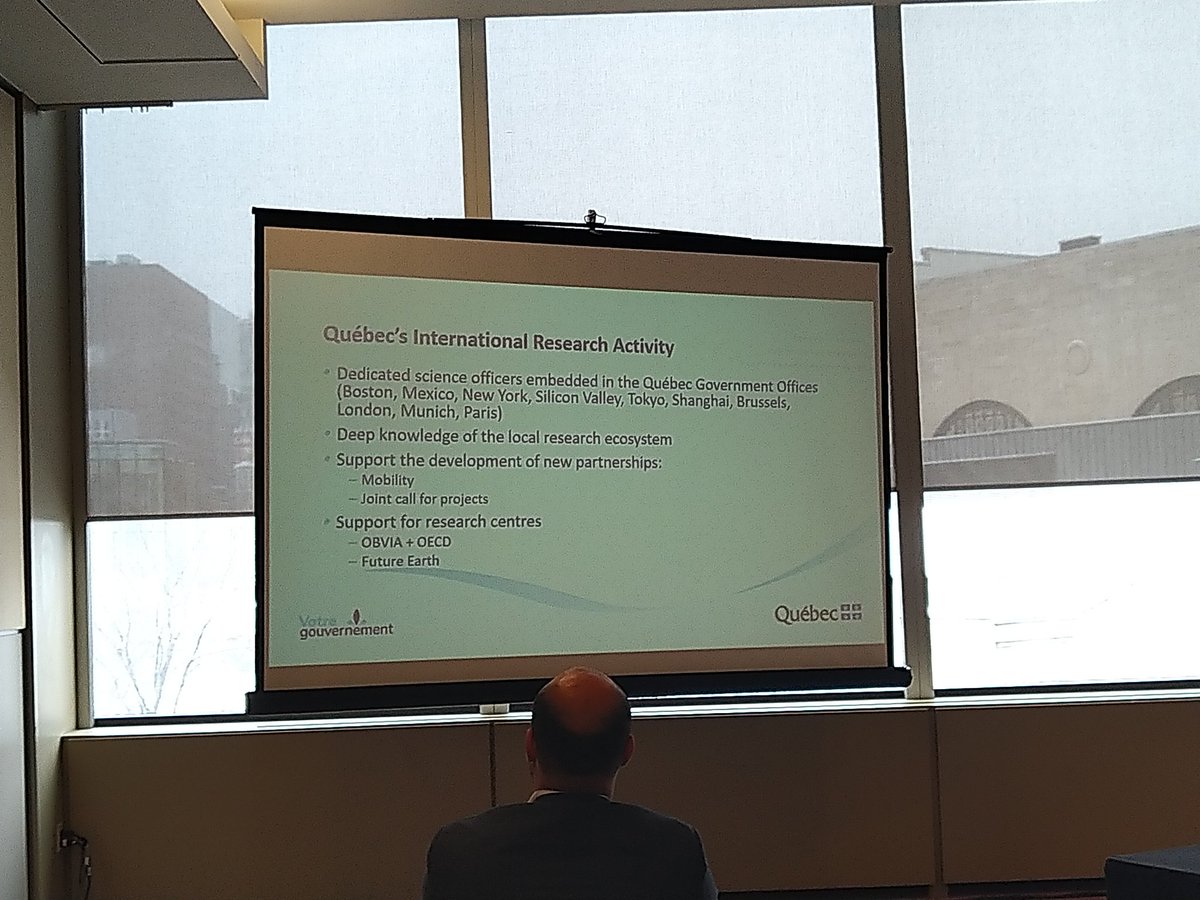
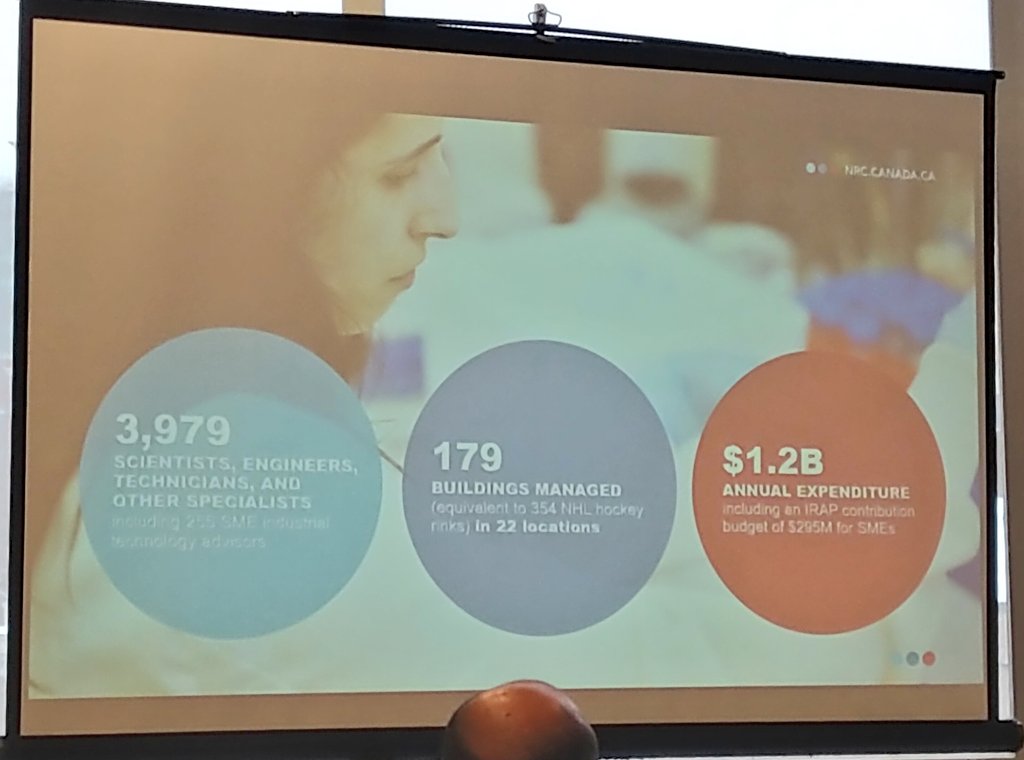
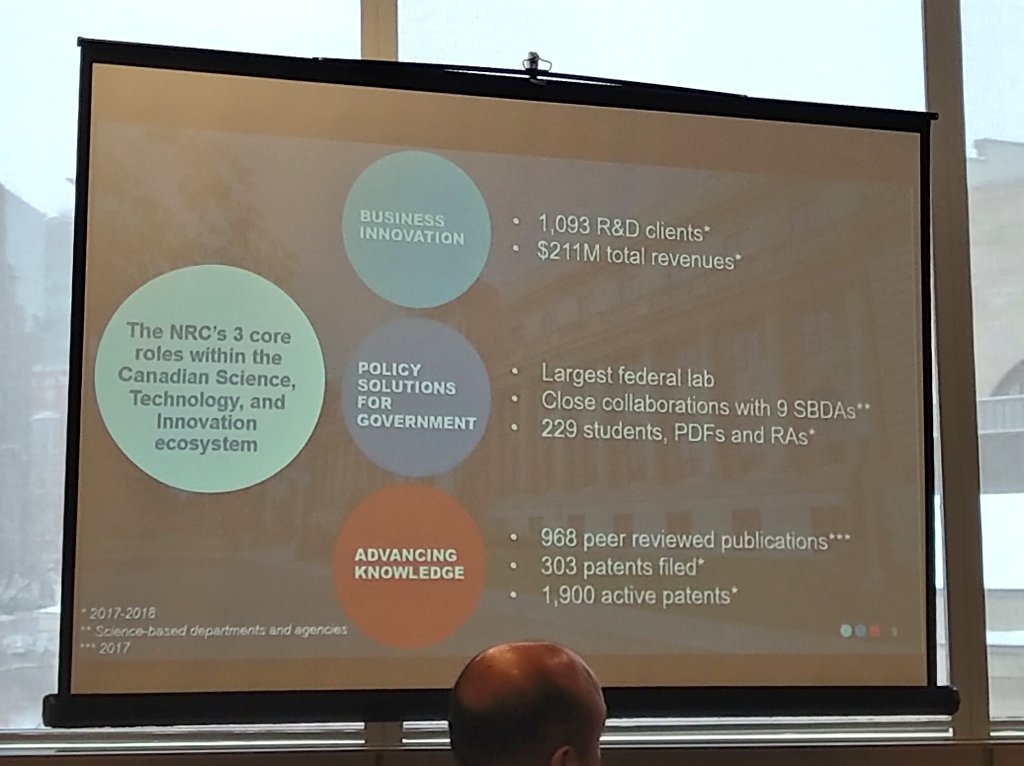
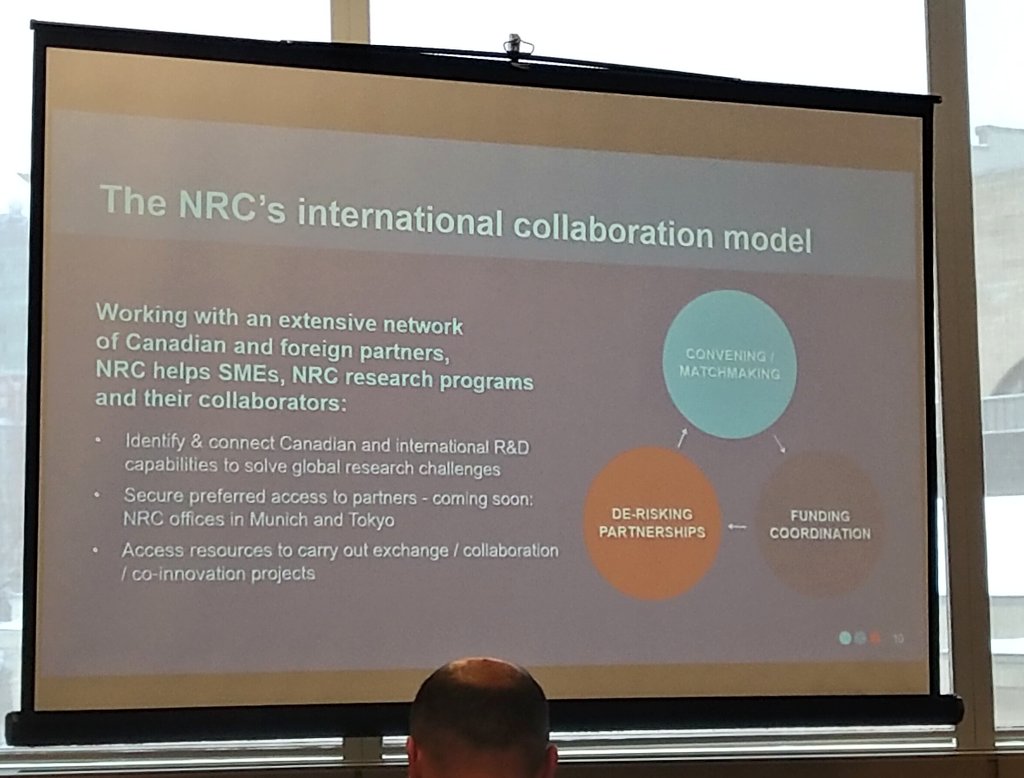
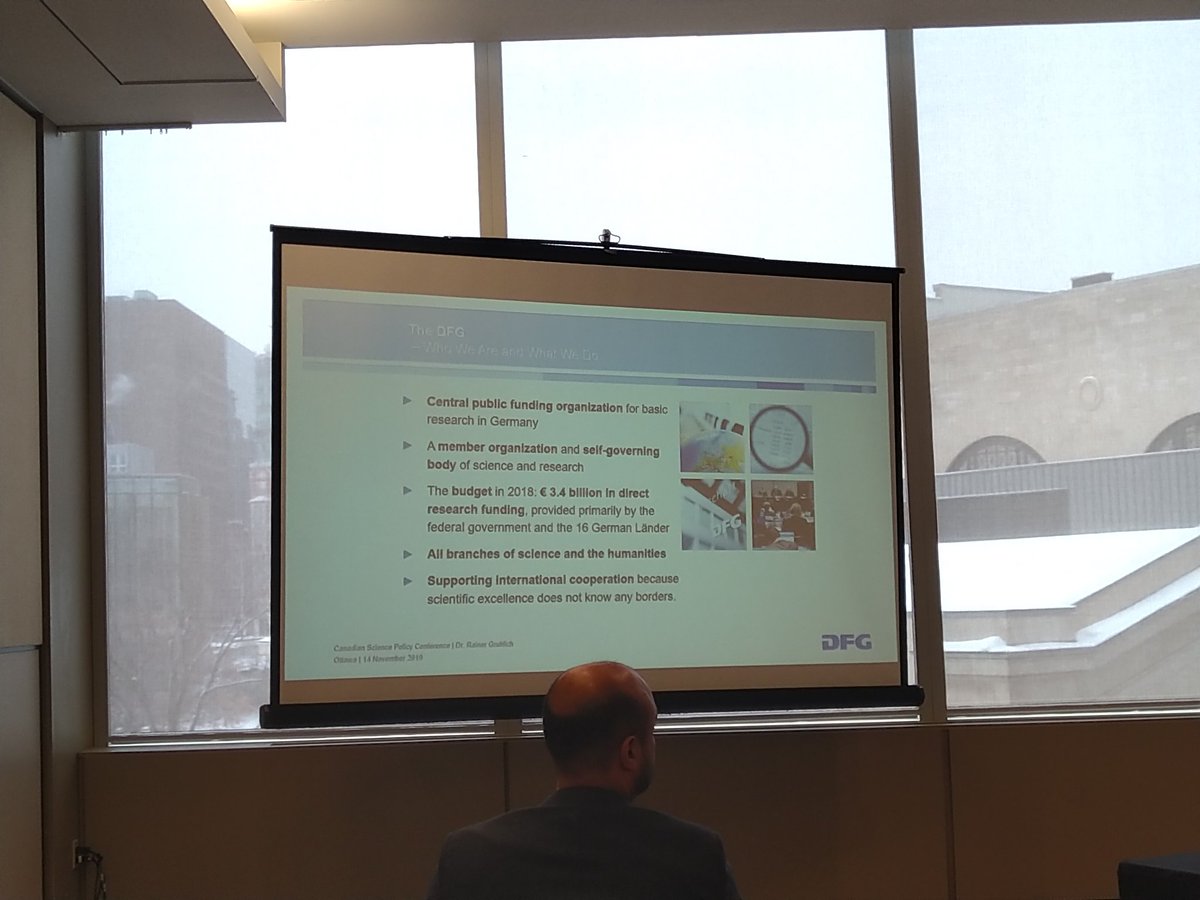
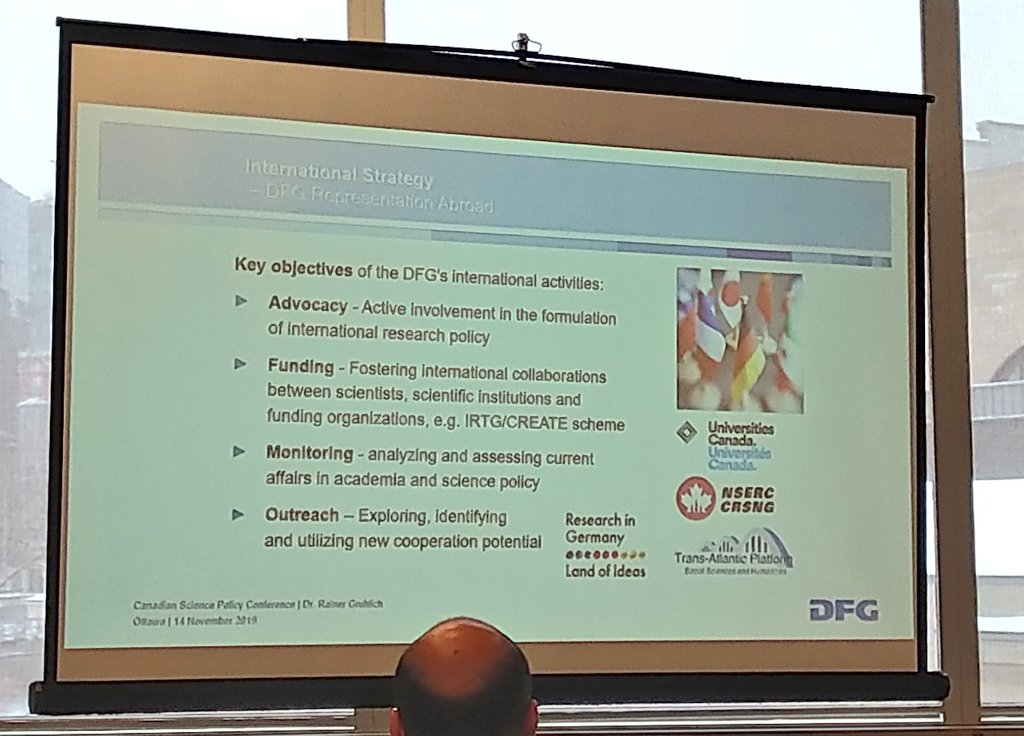
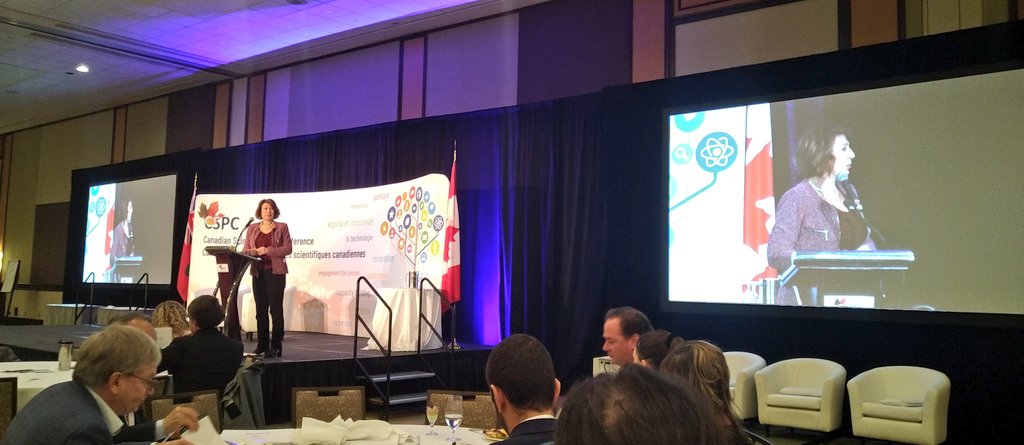
And, of course, ensuring that the office can be a permanent fixture of the Government of 🇨🇦
A - same as before, hopefully with renewed appetite. Time will tell!
@ChiefSciCan got a call today from @JustinTrudeau, asking to say hi to @MehrdadHariri & everyone at #CSPC2019 @sciencepolicy
A - Canada is behind on #openscience and #opendata, though its notable the granting agencies have good policies on open access and research data management. Compliance remains an issue.
A - it took some time to determine what needs to be done - it's more clear now & more resources may come in the future. Form follows function!
@ChiefSciCan agrees on need for #EDI, should not perpetuate bias thru algorithms
A - completely understand, we need a strategy and resources, but money isn't the only solution.
It's important to engage with leaders in this and be part of the international movement for open science. Let's be on the right side of history.
@ChiefSciCan says a "readers' digest" of science may be a good idea!
@ChiefSciCan says we have support including from @PrivyCouncilCA Clerk to engage in #scidip. Developing an international science policy was recommended in last annual report.
@ChiefSciCan agrees that we need more conversations (and champions) for sharing and openness in research
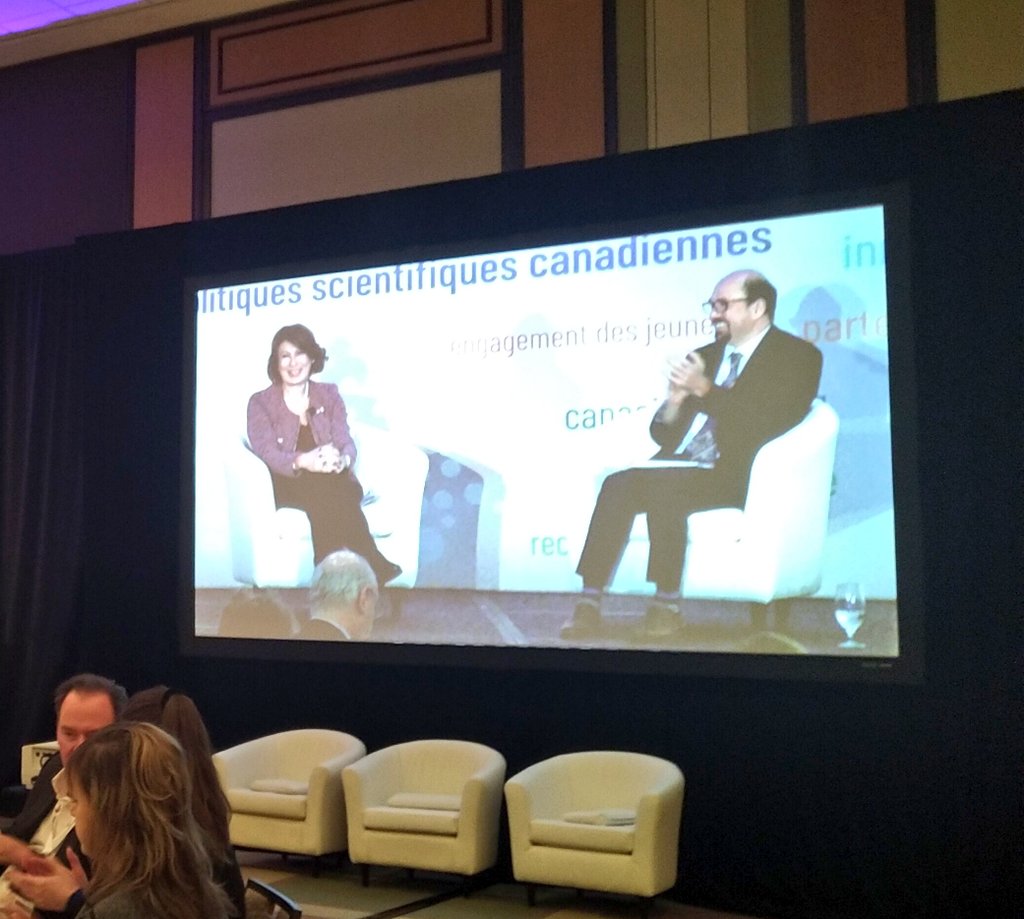
This time I picked Convergence Science & Tackling Grand Challenges, w/ Julie Greene @PrivyCouncilCA, @ImpactCanada Roman Szumski @NRC_CNRC, Julie Angus @OceanRobotics and Shahab Shahnazari @MaRSDD
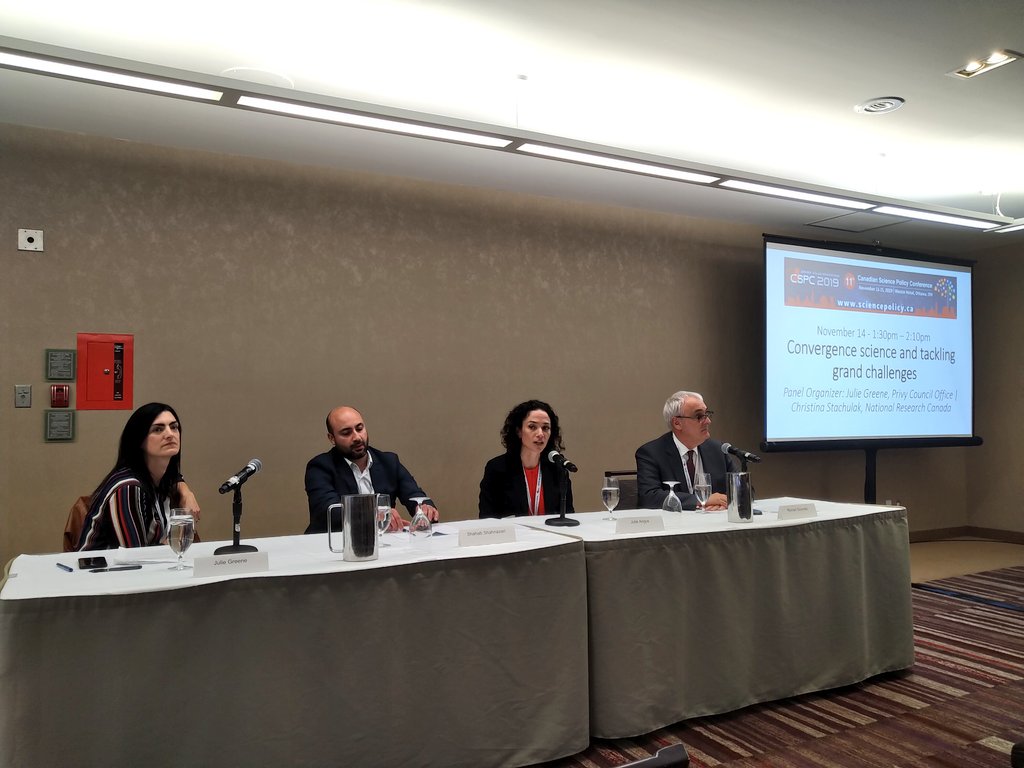
Priority areas include food waste, opioid crisis, numeracy, mining, indigenous housing, +++
impact.canada.ca
She's already got a head start on livetweeting the session by @E4Dca
w/ Preston Manning, @kimberlygirling, @tedhsu, @KarenAkerlof
For external orgs, trust is hard to achieve and is not universal. Better links btw MPs and scientists /experts / advisors who can provide evidence is key
8% don't use science at all, 19% use it substantively. Most use of science is strategic and rhetorical ➡️ finding evidence that supports their viewpoint / eventual decision.
Bias doesn't disqualify information, particularly if the information bias aligns with their strategic priorities.
Report:
researchgate.net/publication/32…
Evidence was useful mostly when it could be contextualized for what policymakers need. Credibility, legitimacy, and salience were the 3 main criteria.
⬇️
Sensational stories win over scientific evidence
🔹 Senior academics should step up & get involved, to increase public scientific literacy & increase the accountability for governments to legitimately use scientific evidence
🔹 Innovate institutional structures to improve connection & access to experts and evidence
How is an MP supposed to be ready to respond when quick responses are necessary?
Knowing where to go on short notice is critically important for ensuring evidence is used in policy decisions & communications
⬇️⬇️⬇️
To make the machine accountable to evidence, we must maintain the integrity of scientific institutions and increase dialogue btw (trusted) academics and policymakers / politicians.
#CSPC2019
A 50 volume report quickly becomes a 50 page summary, then a 2 pager, and down to a bullet point that gets communicated verbally in a 5 min meeting.
How much science is left?
Many researchers would love this kind of interaction
The cross town youth chorus did a great job with the national anthem 🇨🇦😀
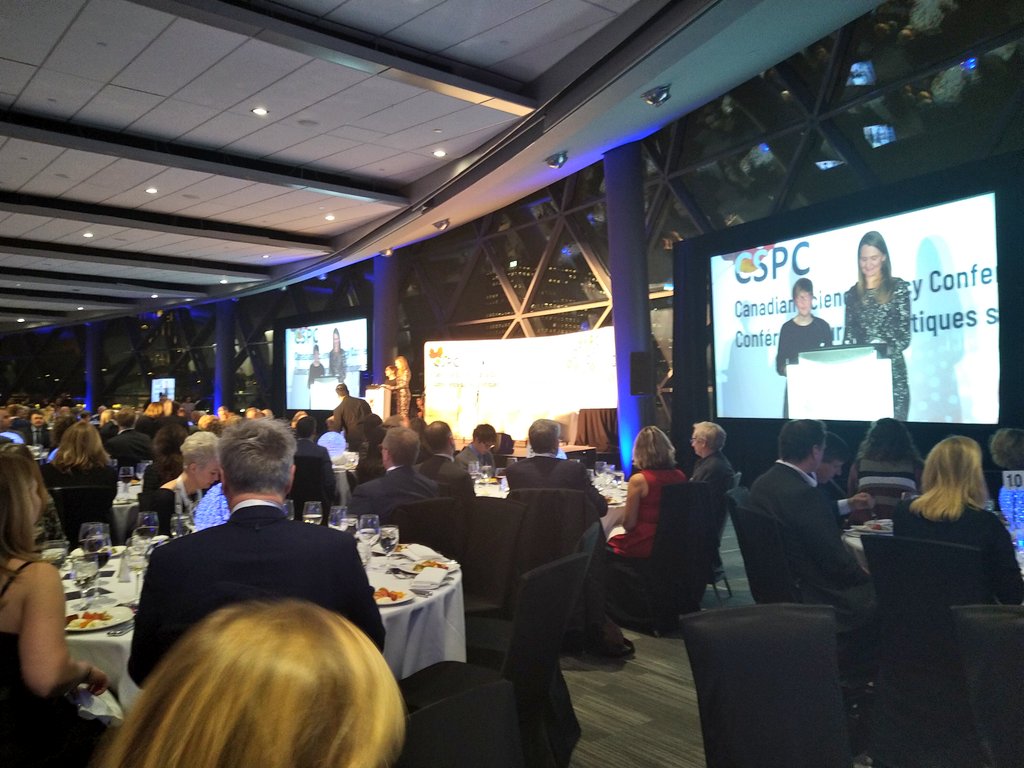
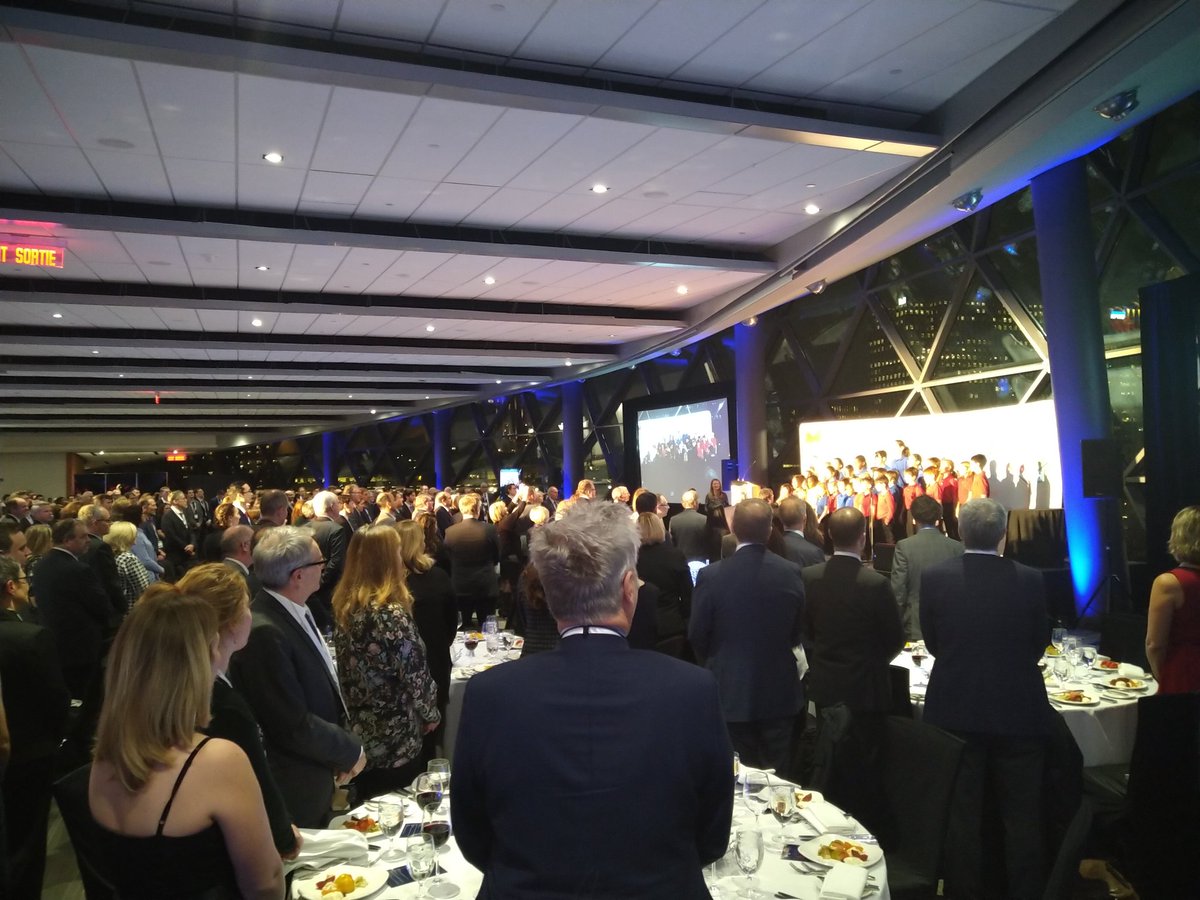
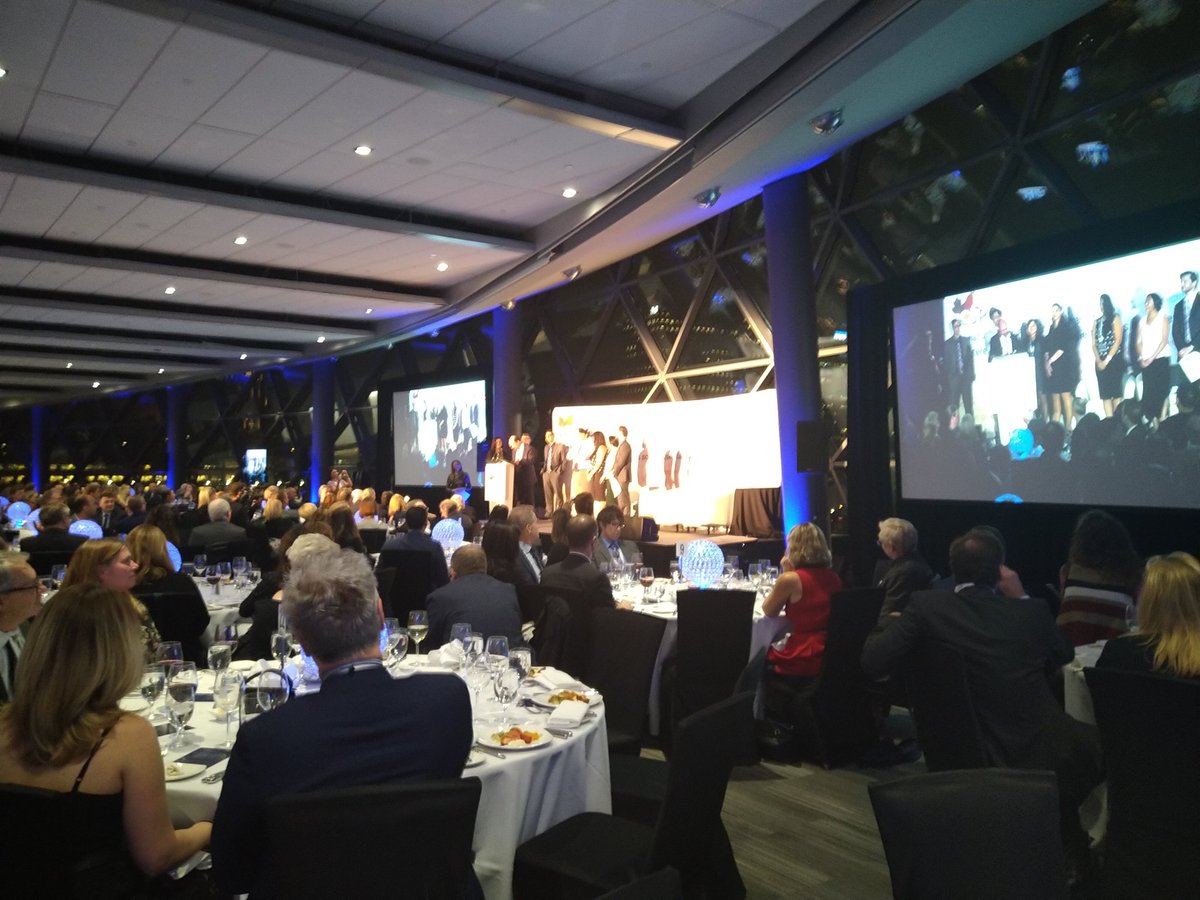

Fundamental and applied science go hand in hand; Donna needed to build a laser to be able to make further discoveries
The Event Horizon telescope 🔭 could only happen w/ a diverse group of people working together towards one extraordinary goal - #AveryBroderick @Perimeter
+ gives a shout out to @NSERC_CRSNG for funding Art McDonald's research at @SNOLABscience, that 🇨🇦 research funding is what leads to 🇨🇦 Nobel Prize
#scidip #sciencediplomacy #CSPC2019
#cspc2019
#DonnaStrickland says we need to ensure science is seen as the frontier of knowledge, not a belief system. But we also need to respect other ways of knowing.
Science isn't considered a "book of facts", rather it is a complex (frustrating) process. Almost every idea we have is wrong ➡️ try to prove yourself wrong, at one point you'll find something right.
Leave them a toy and they'll destroy it 💣 (Engineering!)
They are also avid dreamers 💭 (creativity! philosophy!)
We all start here, and we can learn from this - @GGJuliePayette
40% of seafood sold in Canada is mislabelled ➡️ the industry provides 6B$ to the economy. Seafood fraud puts us all at risk. Her proposal incl better labeling standards & DNA barcoding to safeguard the supply chain 🔗 🎣
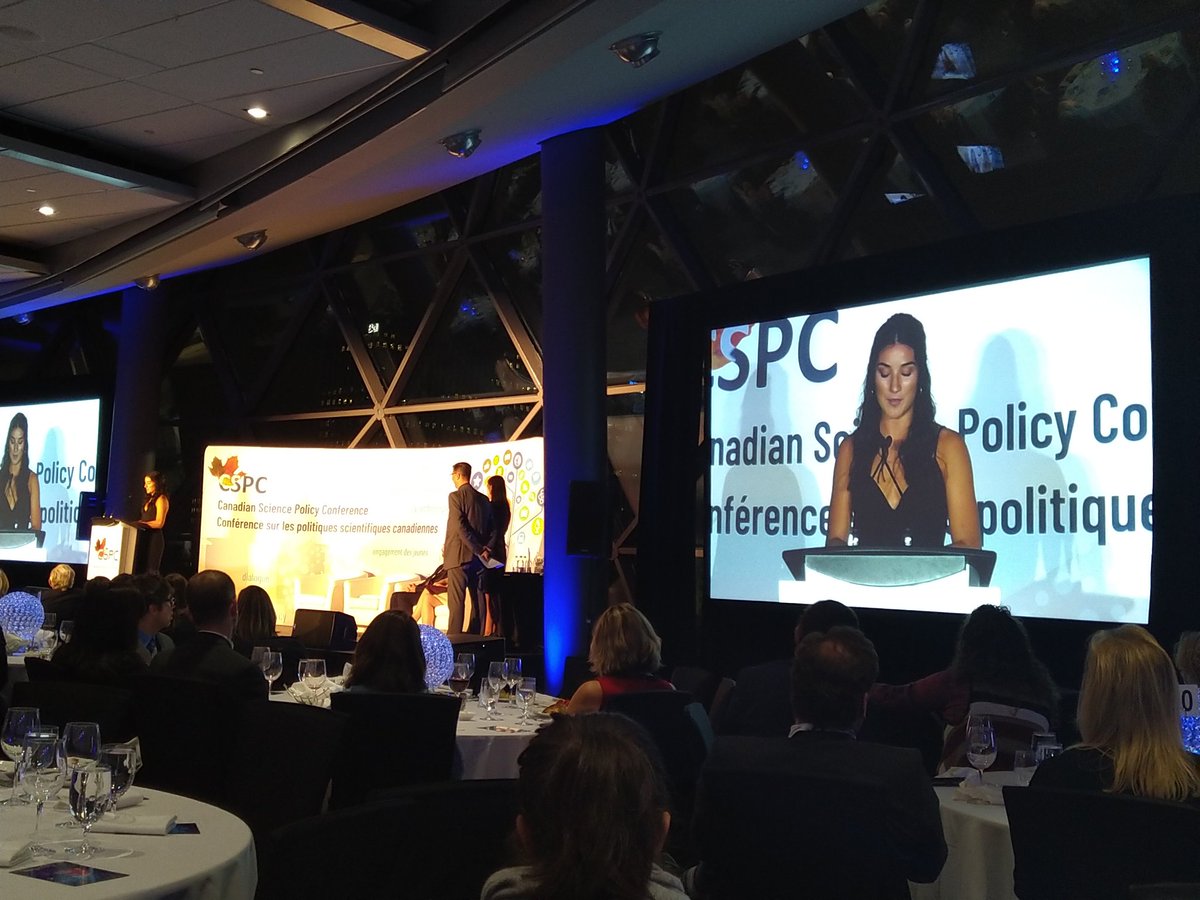
Award winner spent his life in science policy, is a mentor, and a champion for the next gen in #scipol. It's Paul Dufour 🎉🎊!!
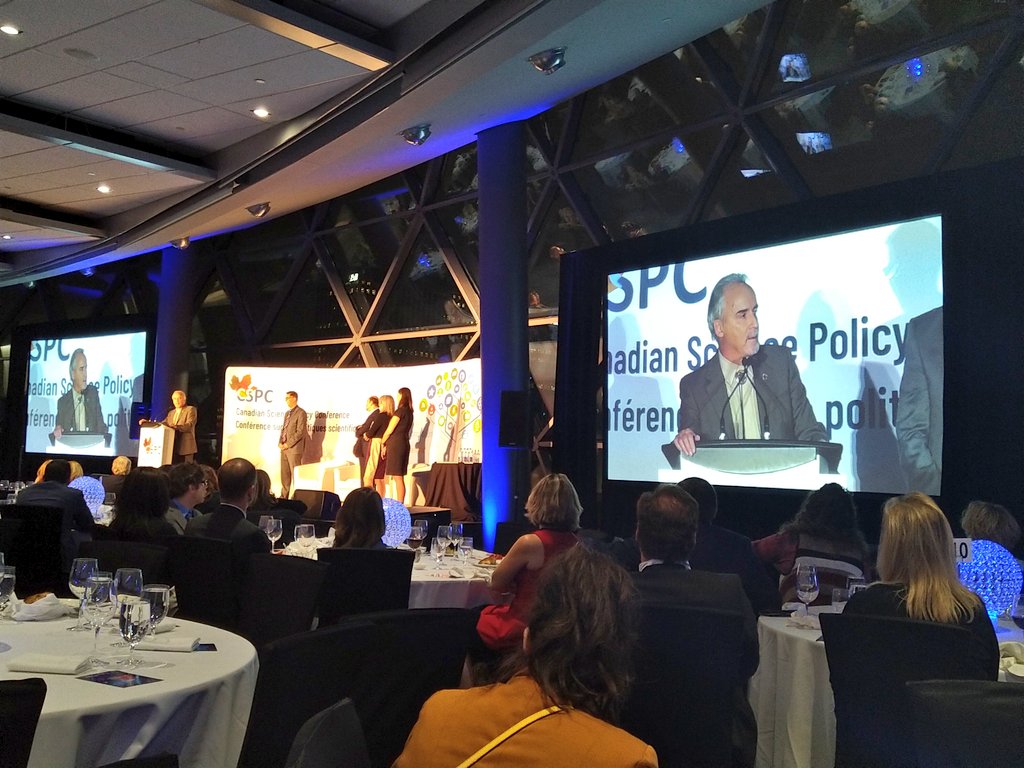
Panelists: Janet King @PSPC_SPAC, @katemoran and Kim Juniper of Ocean Networks Canada, and Iain Stewart @NRC_CNRC
#Thread ⬇️
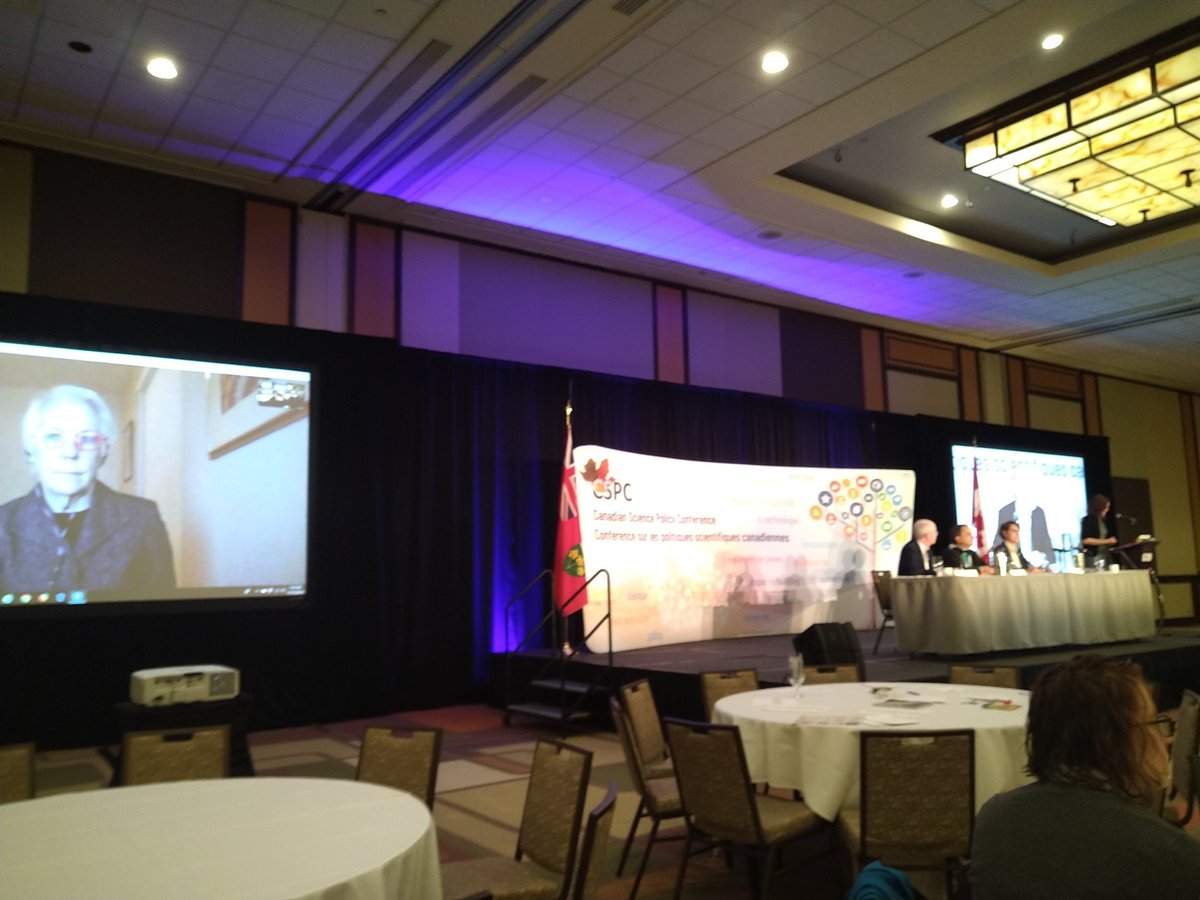
This incl support for IT and cybersecurity
w/ Liette Vasseur, @alejandroadem
@TammyJClifford, Roseanne O'Reilly Runte, and Ted Hewitt
#Thread ⬇️
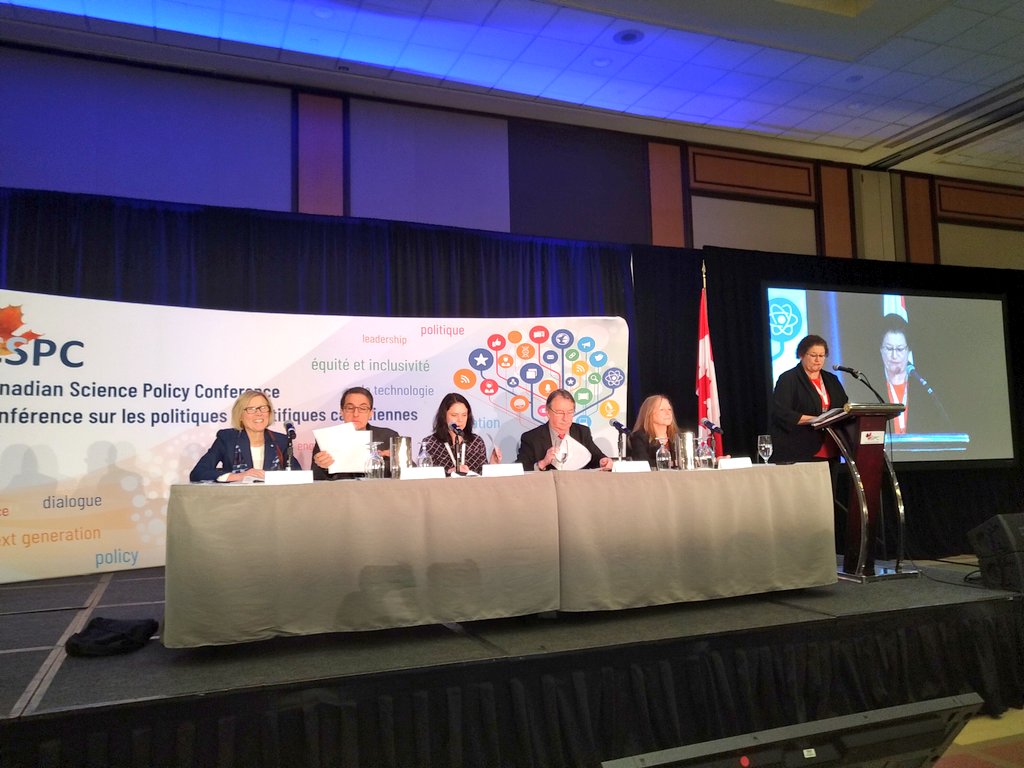
Ensuring to get #EDI right, that we value great contributions, is key
Dr Runte asks back, how do we know when we have the answer? How do we know we are wise?
Dr Runte says that without forcing interdisciplinarity, we can still encourage convergence research.
@alejandroadem @NSERC_CRSNG says all forms of research can lead to great discovery,
@TammyJClifford says using Biosketch rather than CCV especially for patient participants in research design may be considered.
(not answered)
@TammyJClifford - we have to continue to prioritize knowledge translation efforts (bedside & beyond) and to focus on training stategy. ECRs will be most critical to make sure this happens, so they can thrive rather than survive. @CIHR_IRSC #cspc2019
We are just starting this discussion, let's keep this going 🤝🙌
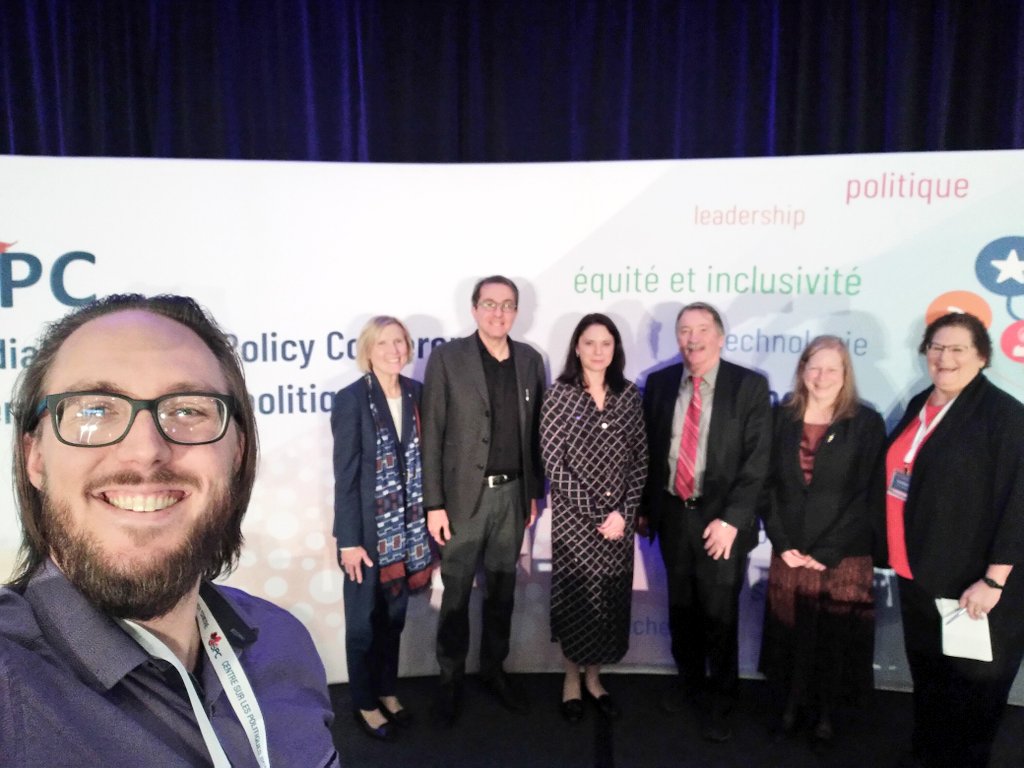
w/ @emmeslin @cca_reports, Liz Boston @NSERC_CRSNG, @stefhaustein @uOttawa, @ajrbradley @ontariotech_u, @XiaodanZhu2048 @queensu
Thanks for the shout out, Eric!
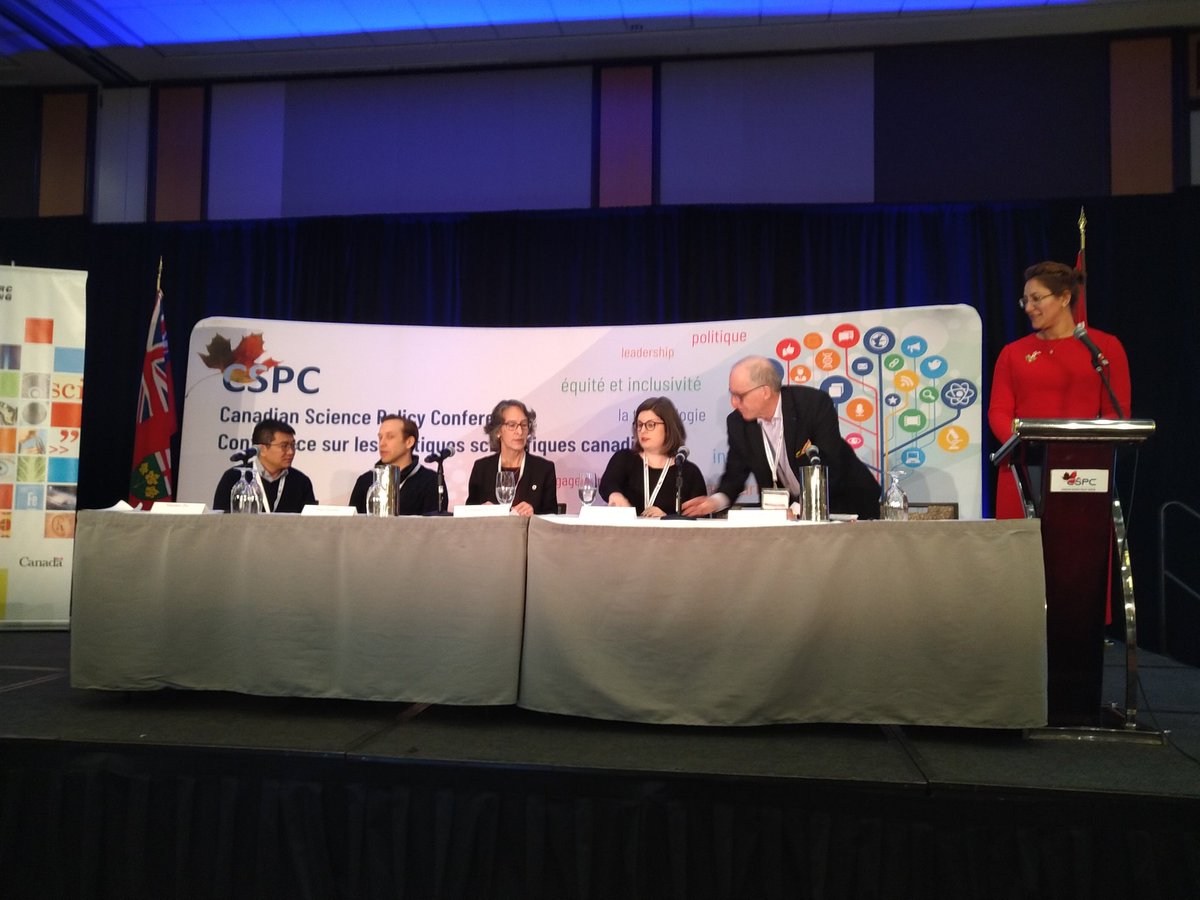
So how do we use data to understand a research ecosystem? Some things we measure aren't important, not everything that is important can be measured. Stop measuring the same thing, looking for diff answers.
Dr Boston @NSERC_CRSNG is not a data expert, but is a funding agency expert, and she starts us off w/ terms used to describe how we view the research ecosystem. Often interdisc, not always ⬇️
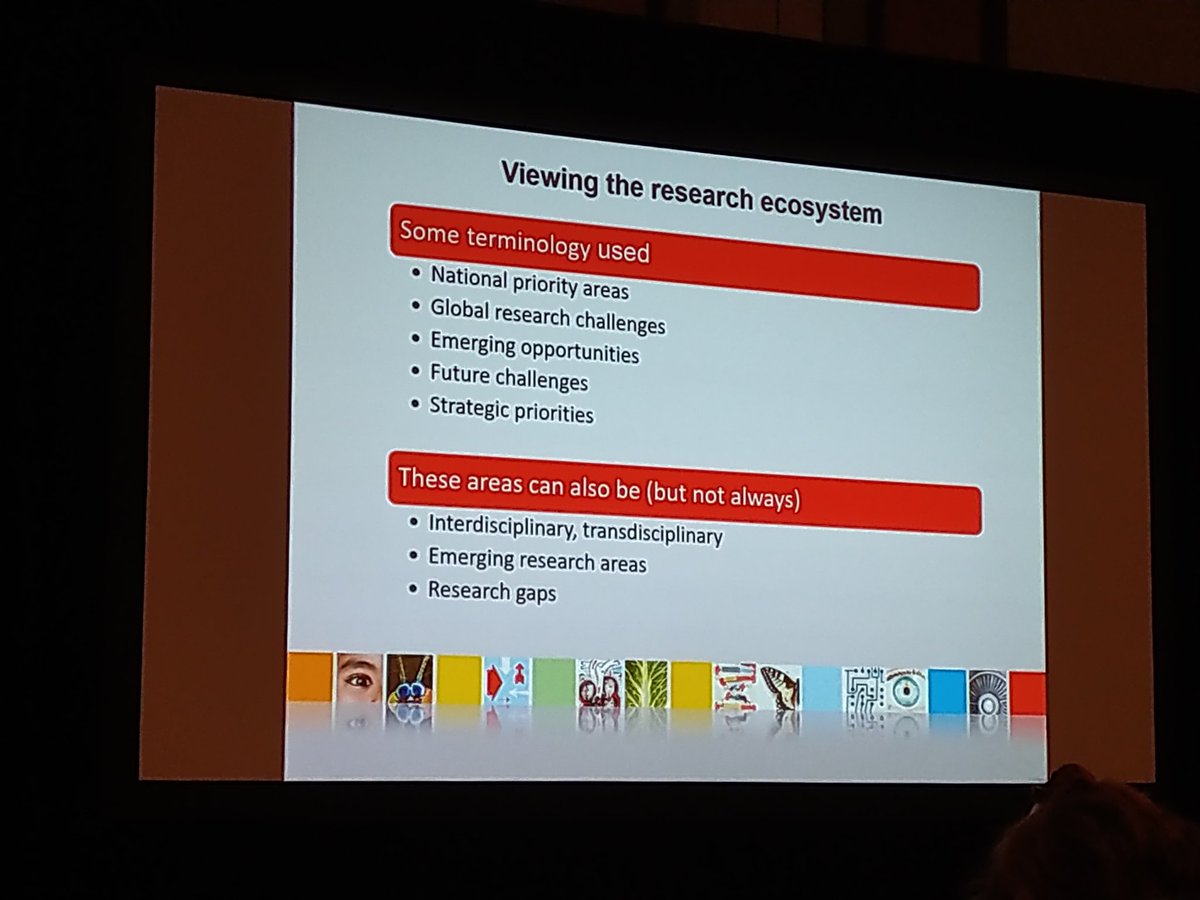
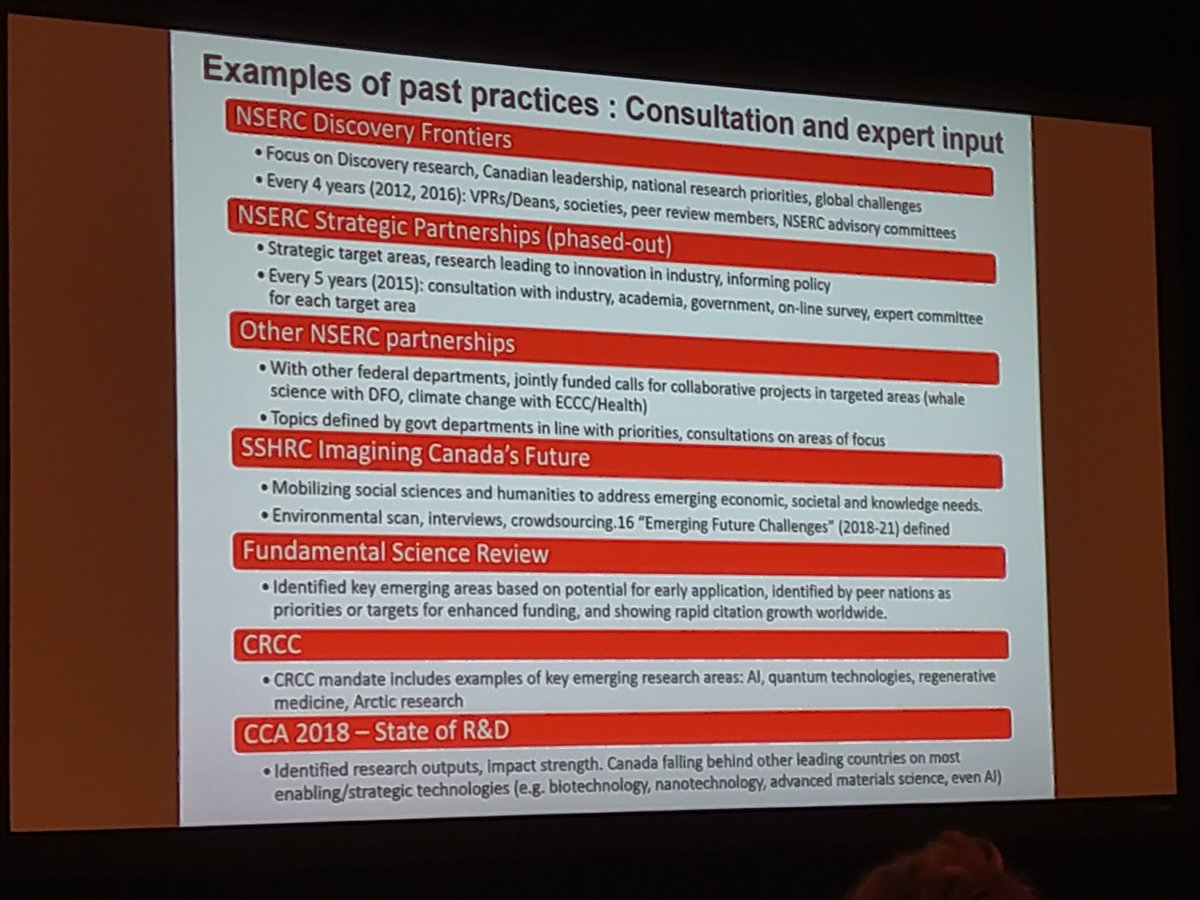
Notable that new #Alliance program doesn't have targeted areas
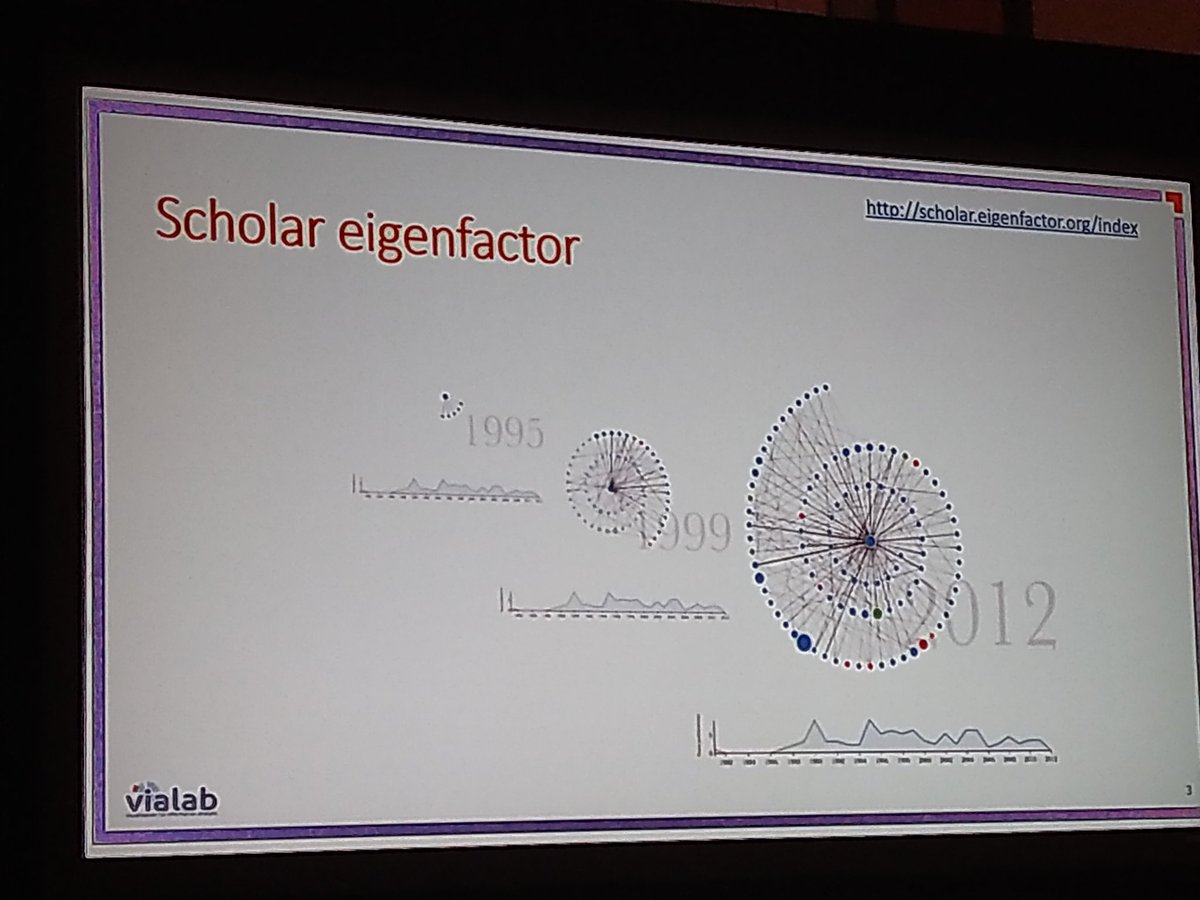
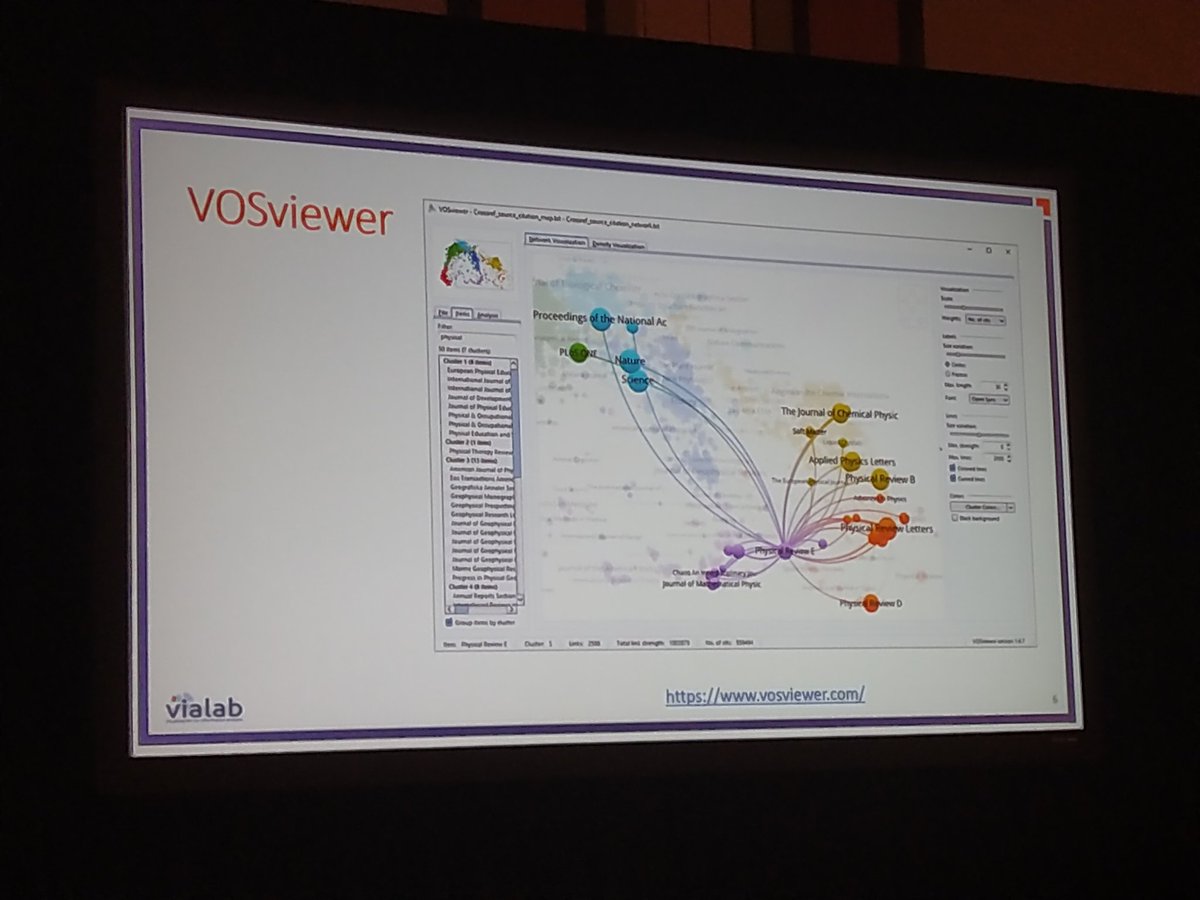
@ChrisNF @ajrbradley lab is developing tools to determine not just what is there, but what is interesting?
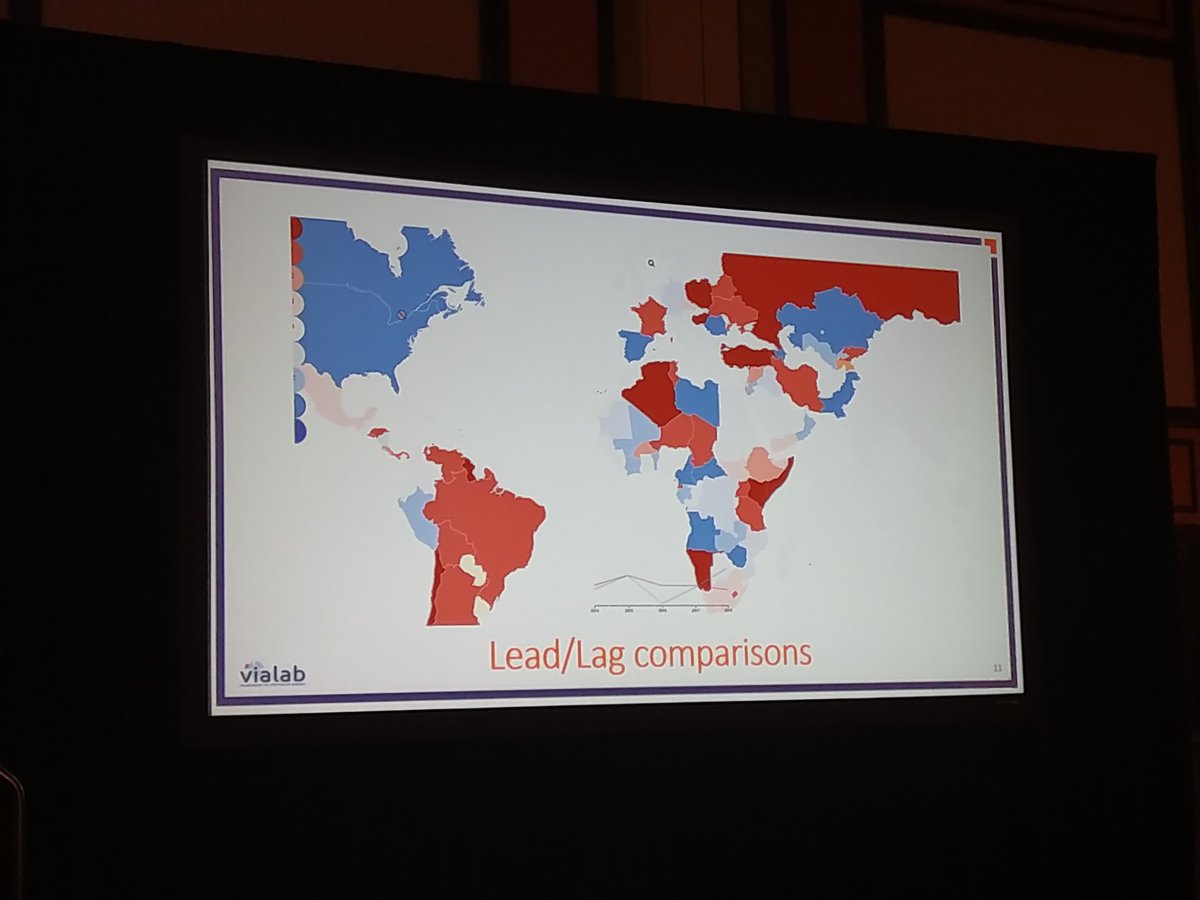
Looking at graphs below, we can see the younger researcher (@lariviev) can be undervalued because his shorter career means citation score is much lower..
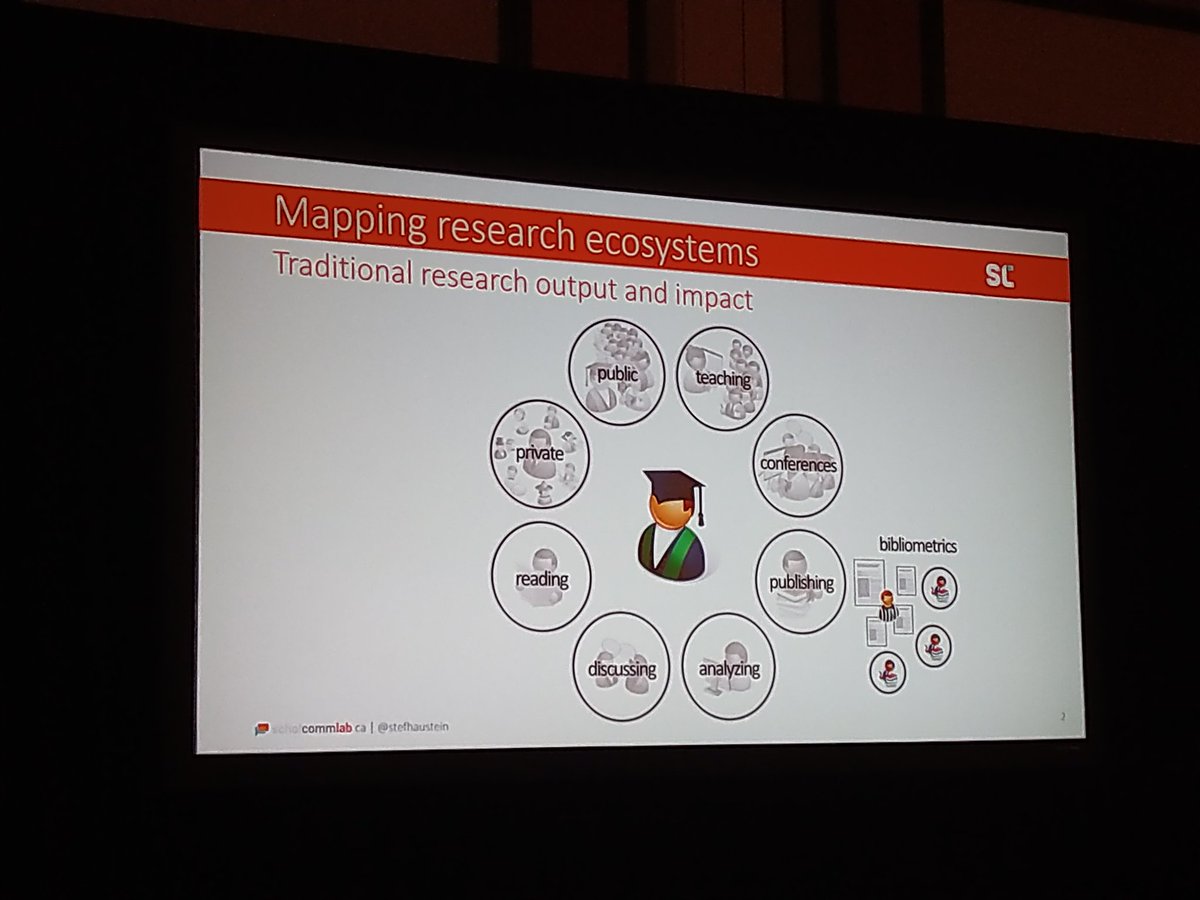
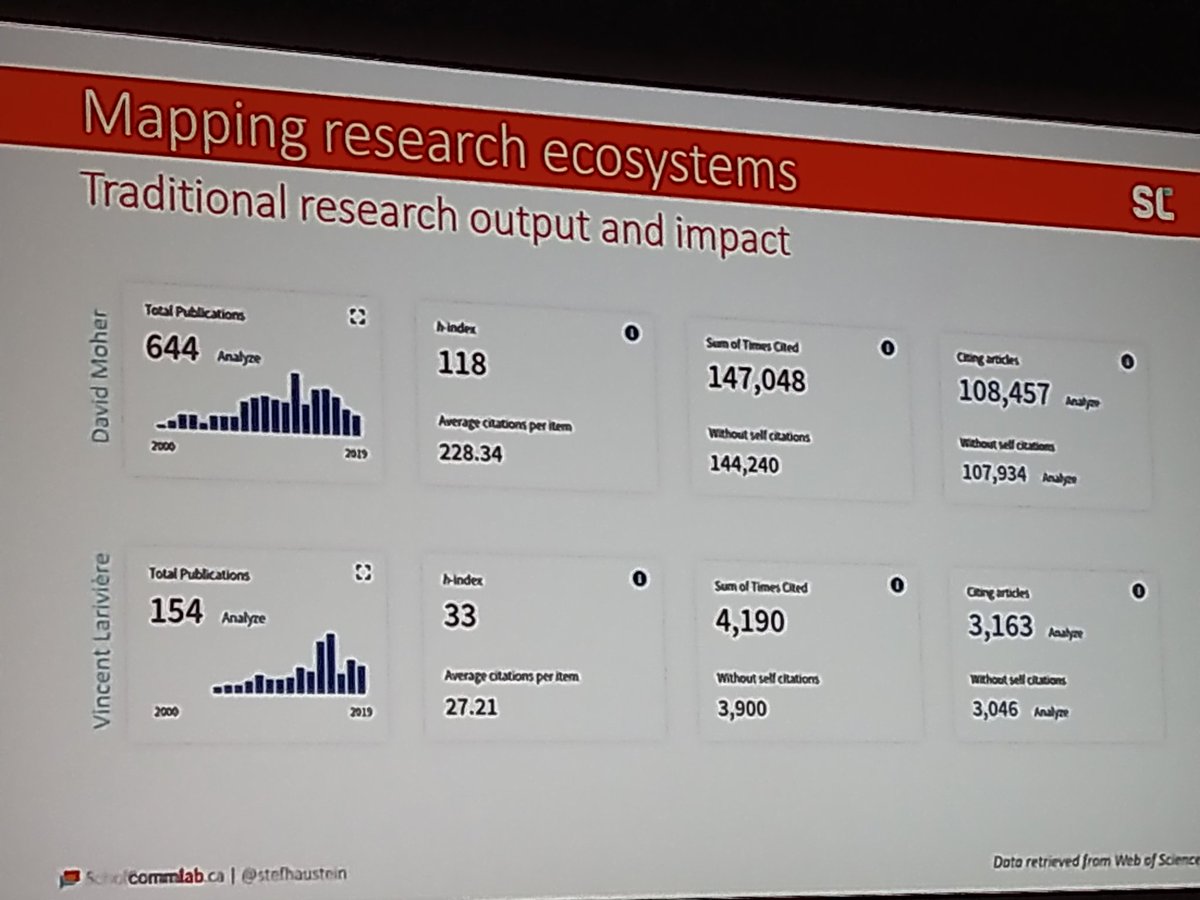
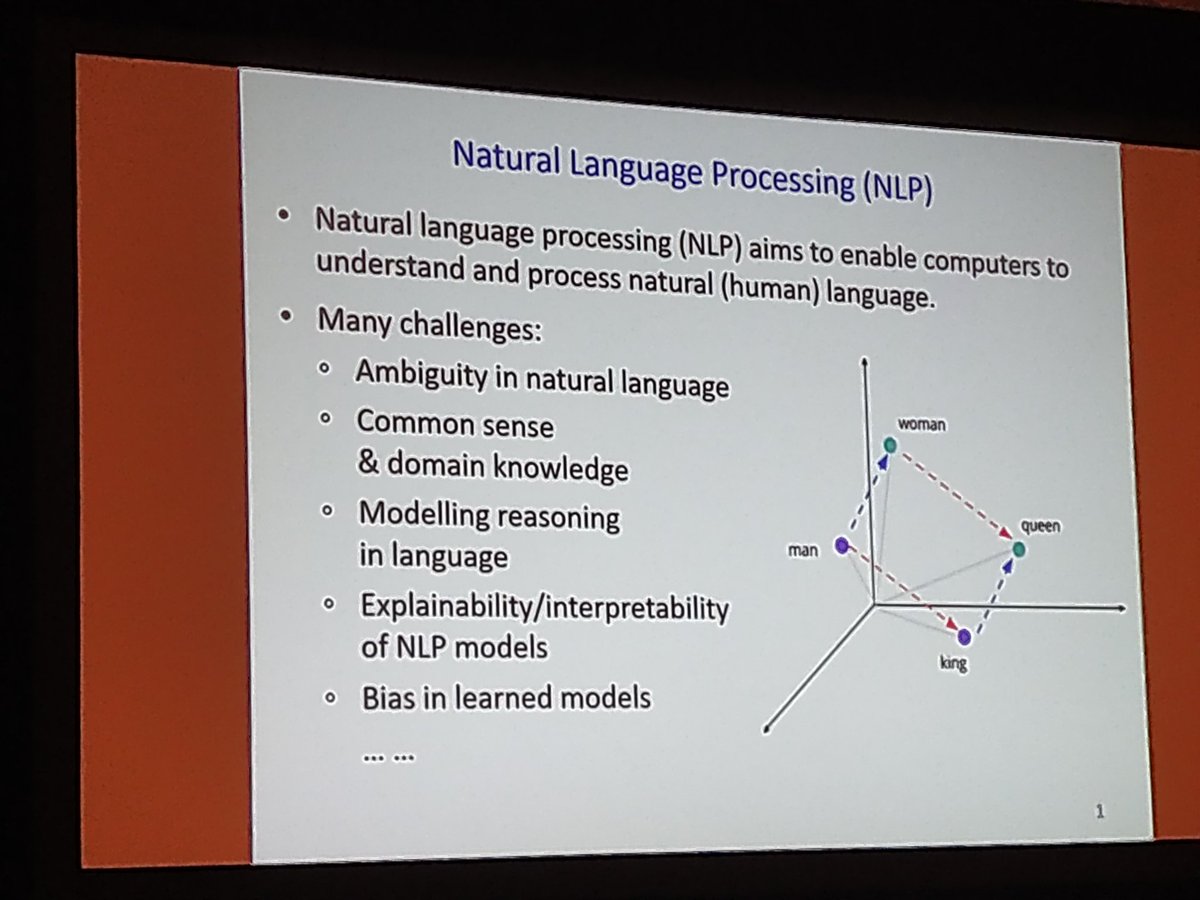
This research area has advanced rapidly
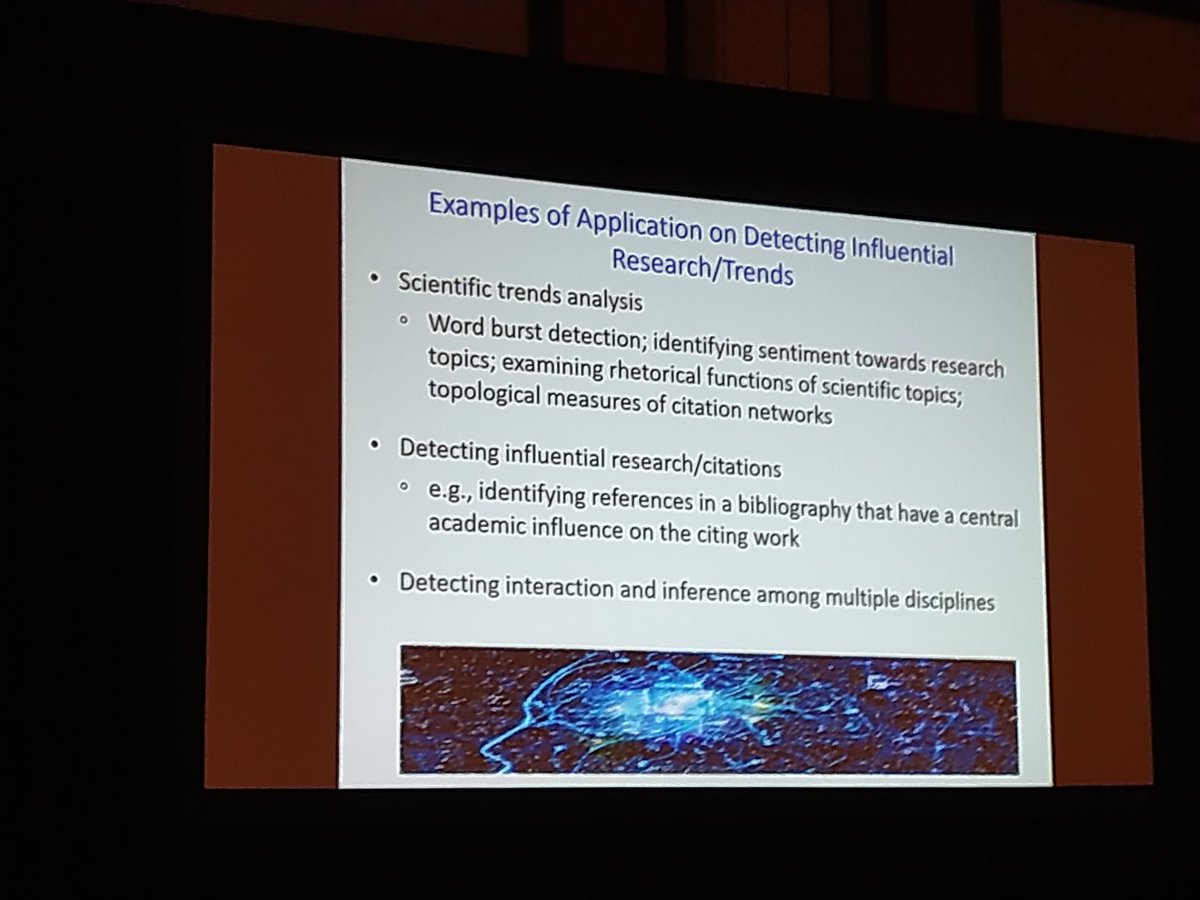
@ajrbradley says there are critical ethical issues in data analytics. We know data is biased! Train a chatbot on the Internet, it'll be racist!
@stefhaustein says there are ways to measure it and it should be!
Liz Boston @NSERC_CRSNG adds that it would be v useful to have aggregated / useful data on how researchers demonstrate excellence broadly, incl on mentorship
She is now developing #scicomm tools to help teach people why the H Index is biased and how to be more equitable in measurements.
@emmeslin published a paper in a small journal, which cost 25$ to buy access thru a paywall, whereas a sci-fi book on the same topic is 3$ at Wal Mart. This speaks to importance of open access.
@stefhaustein says metrics should never replace peer review, but if data is well organized it can help drive evidence informed decisions.
/fin #CSPC2019
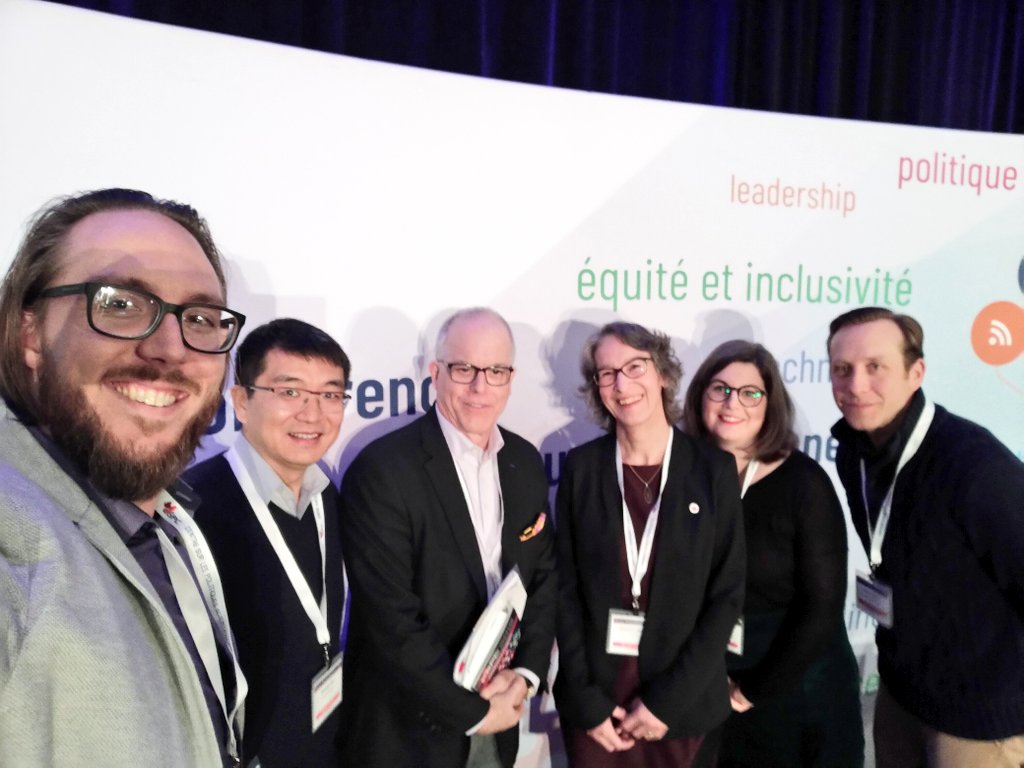
w/ @HolzerAngela @dfg_public, @dsweeneyUK @ResEngland, @Monsauce @environmentca, @dom_roche @ucarleton, @skettley @cdnsciencepub, Guy Rouleau @TheNeuro_MNI
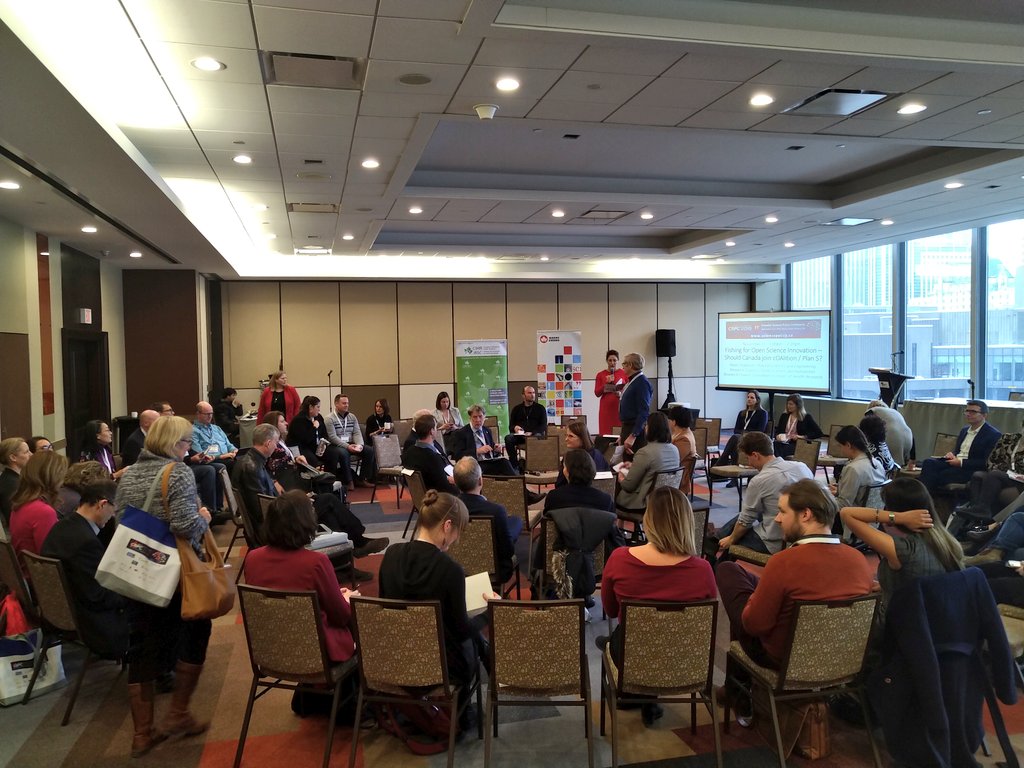
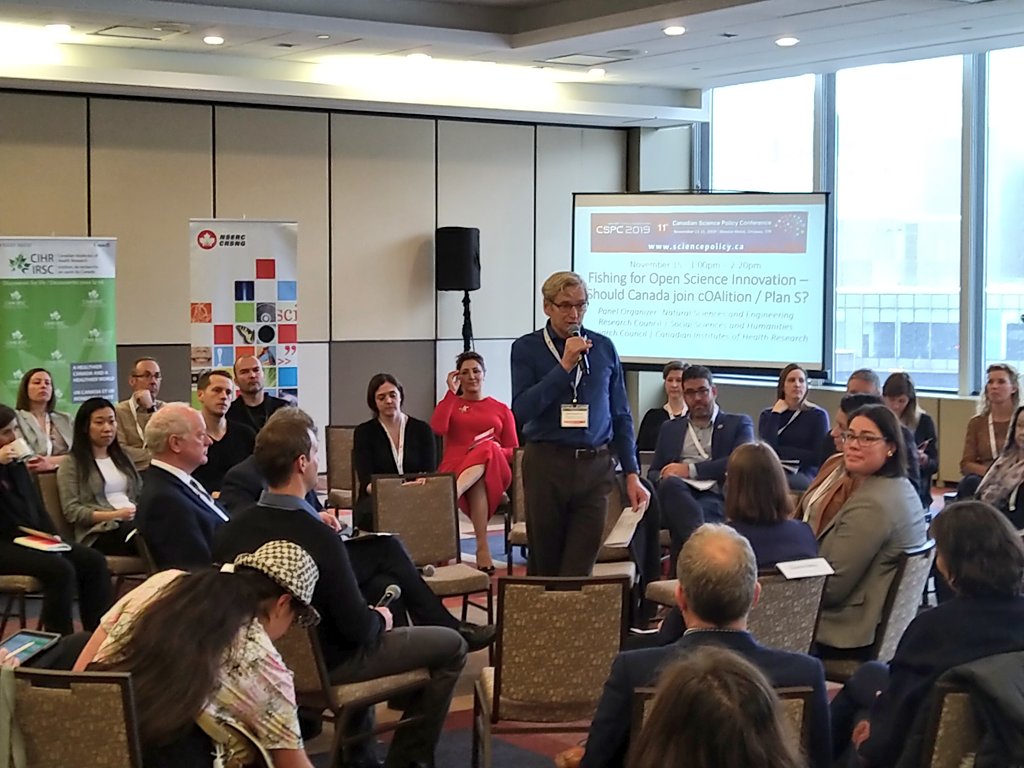
It is phenomenal so far though, and would be very happy if someone can tweet and/or share their notes 🙏








